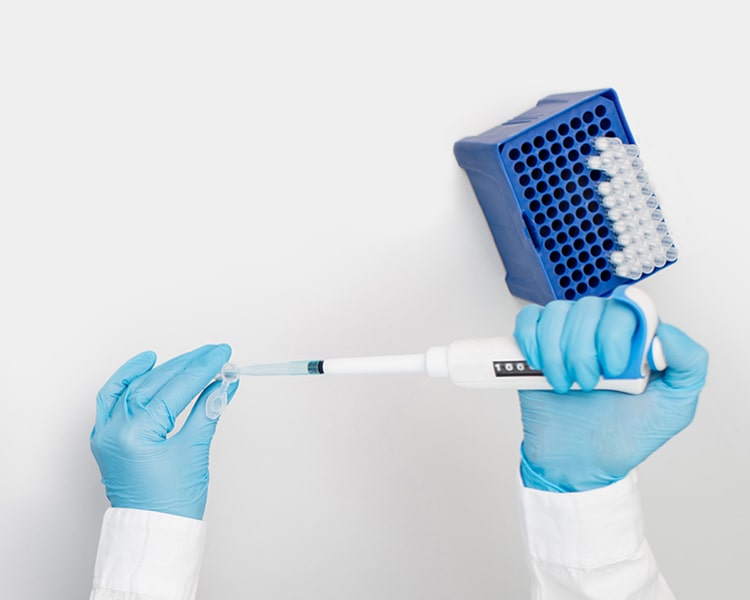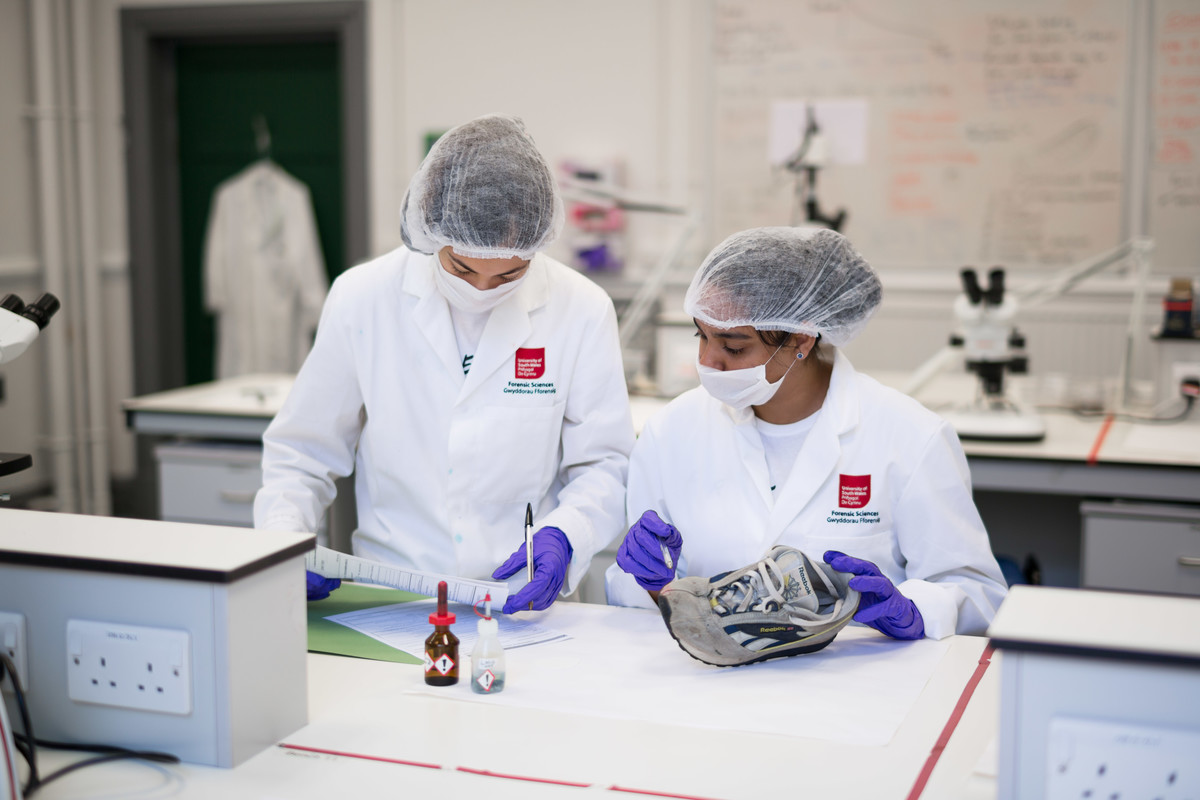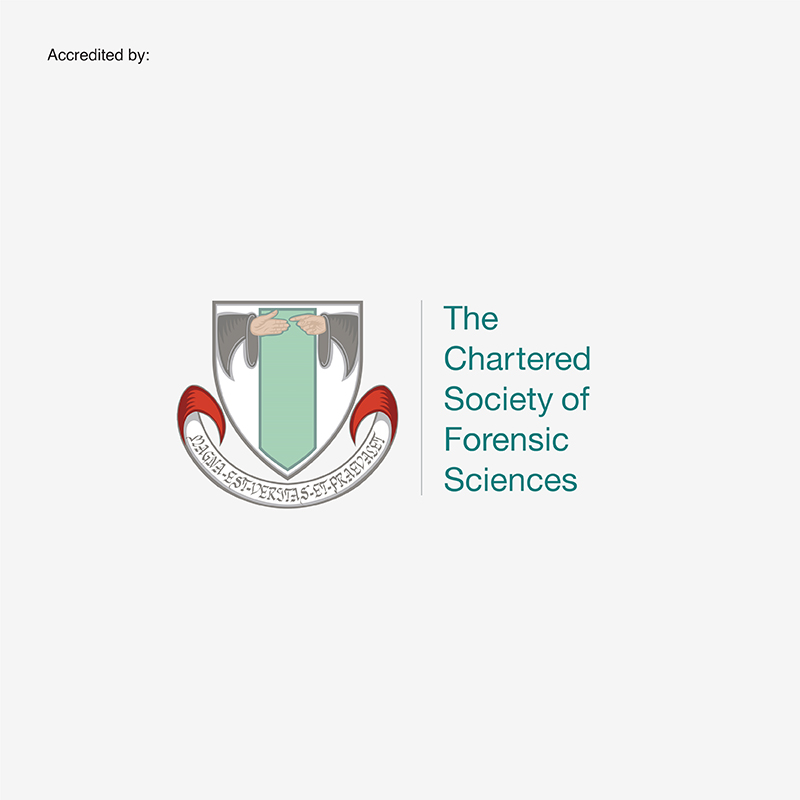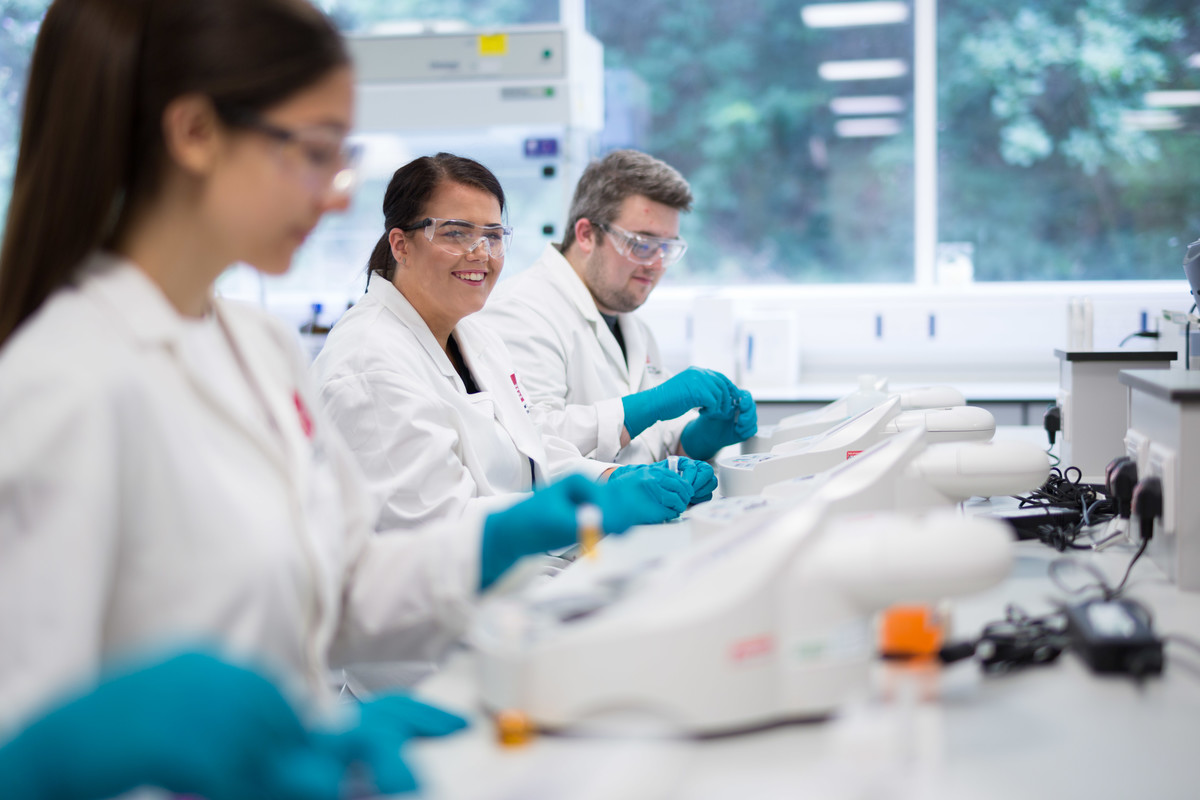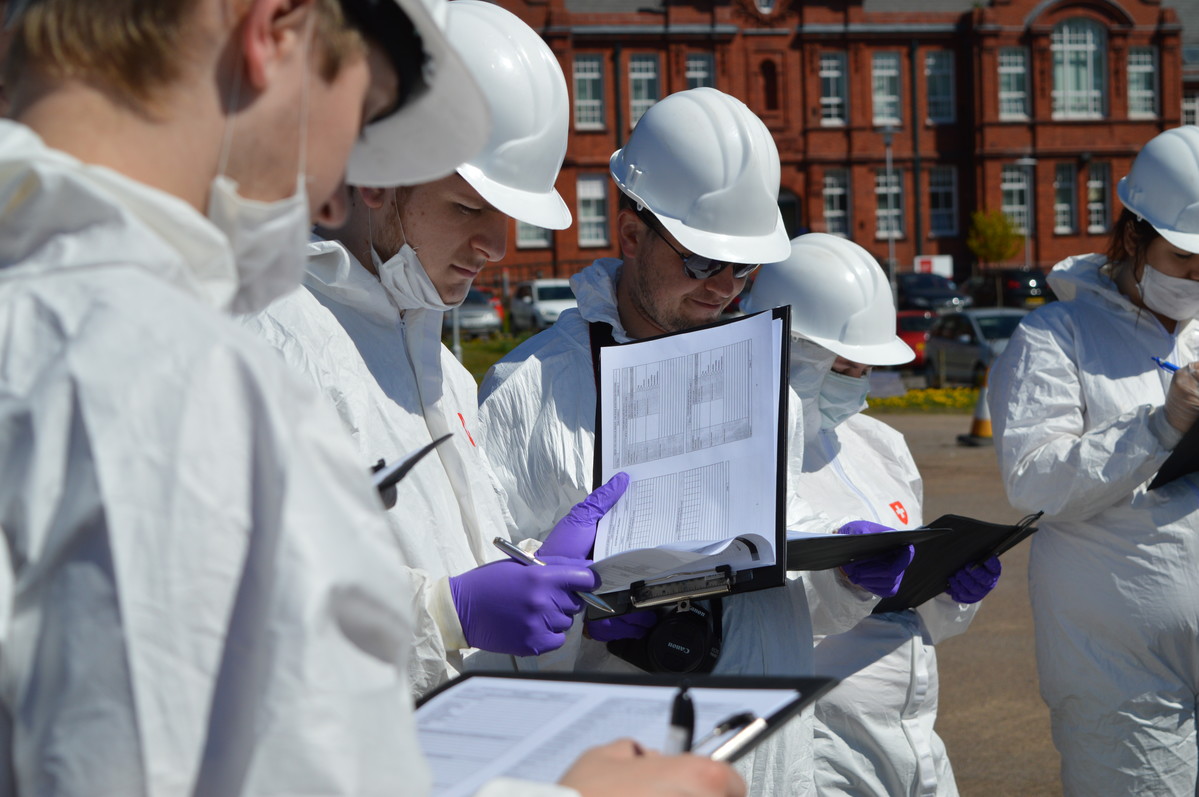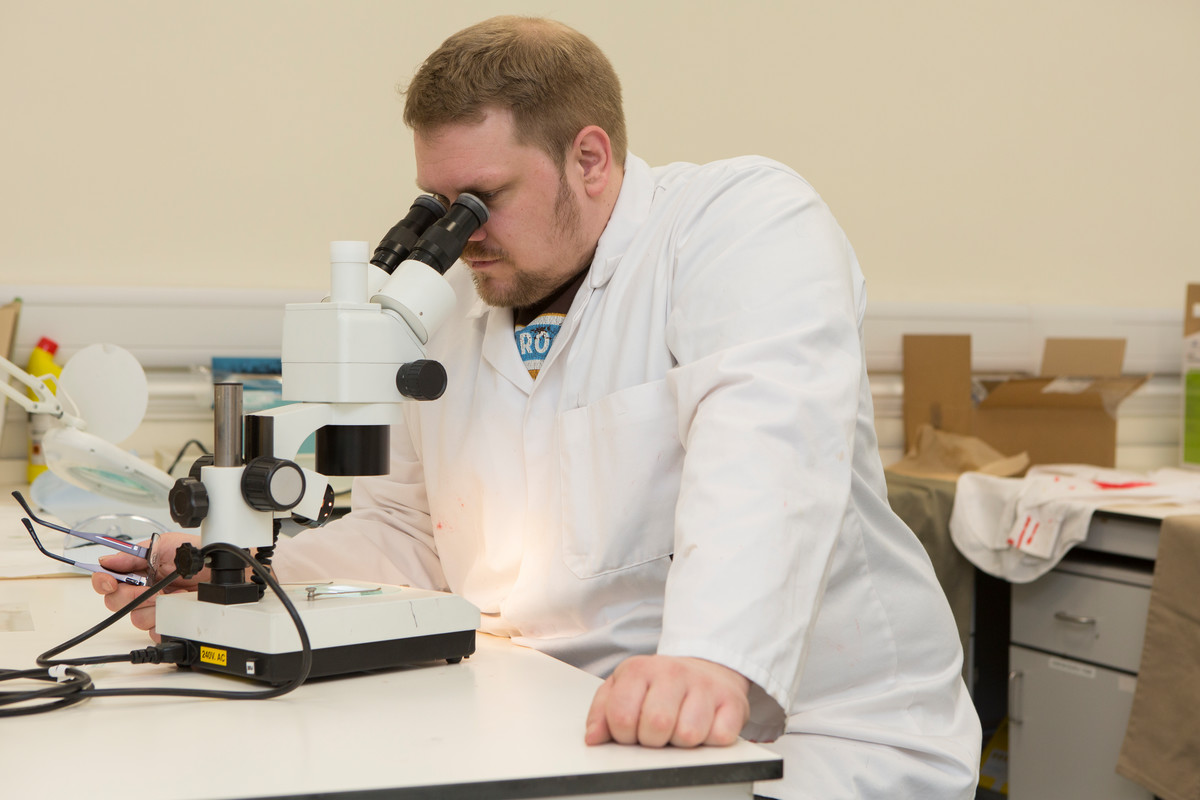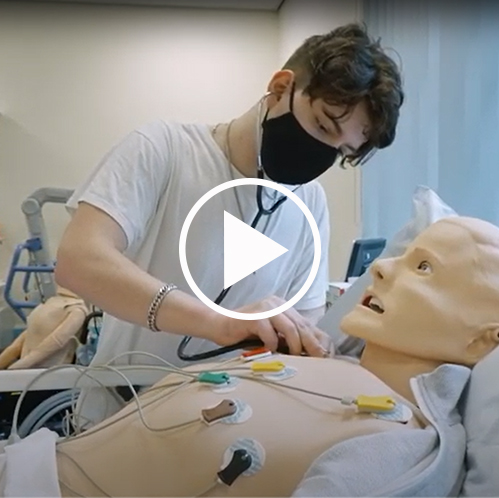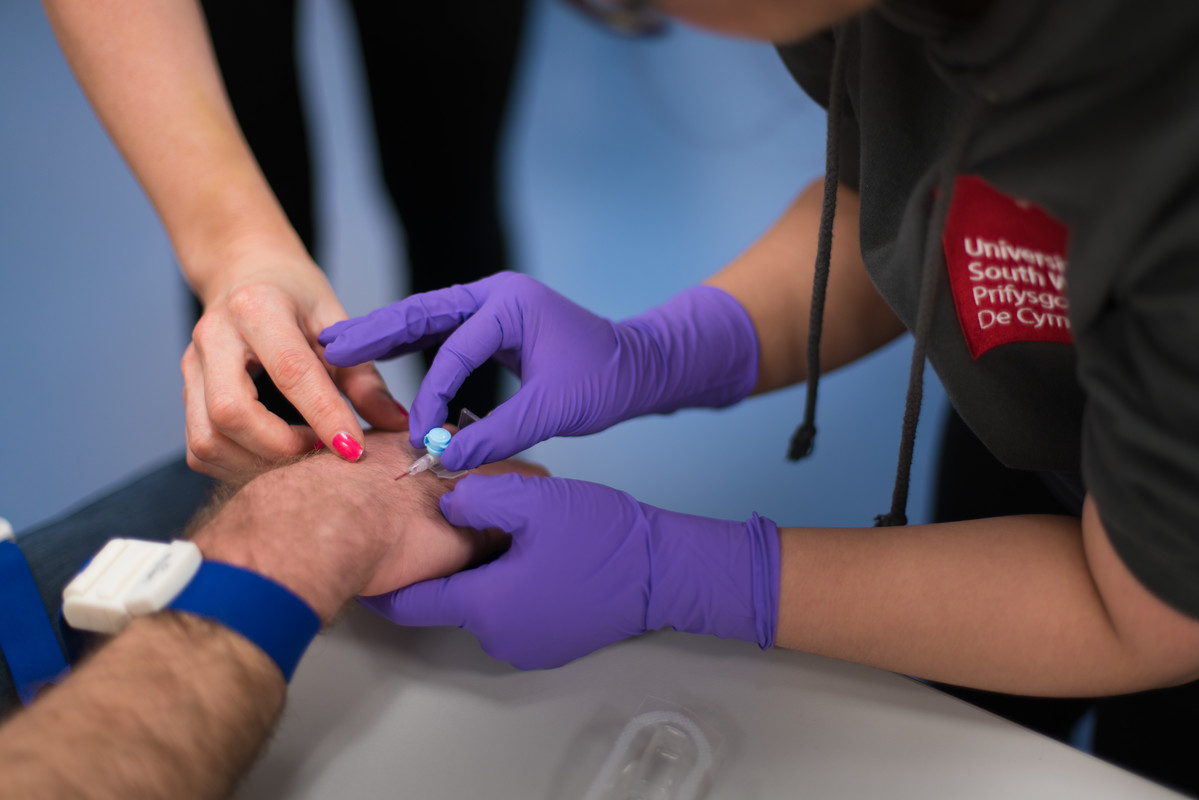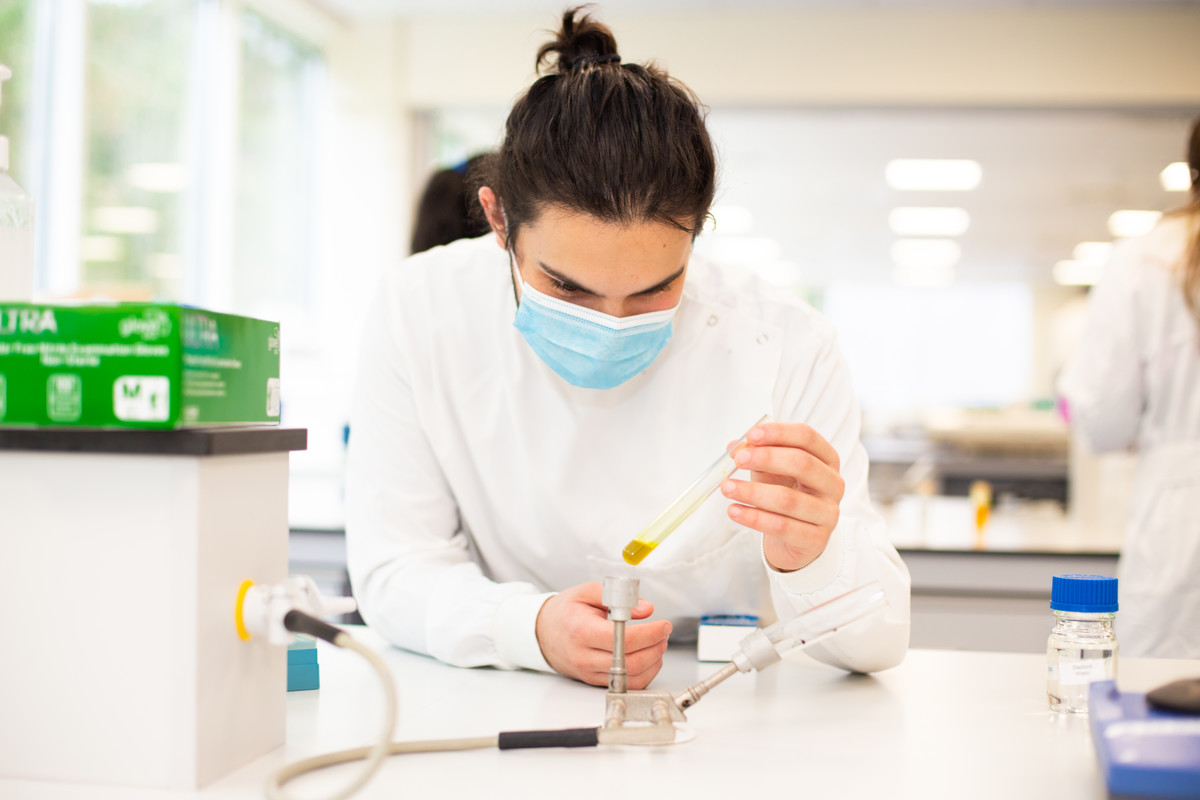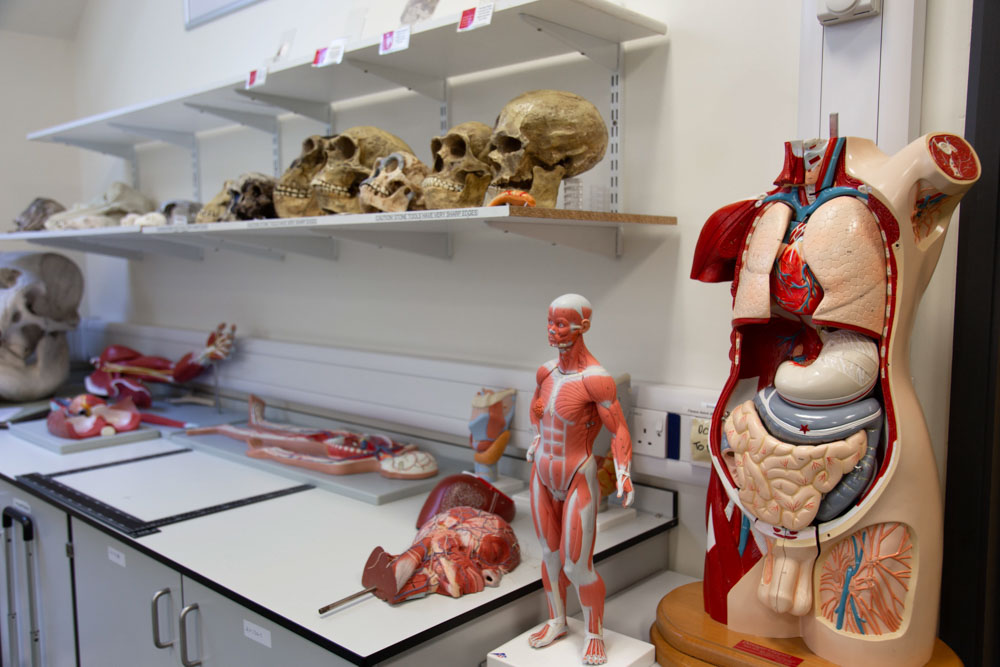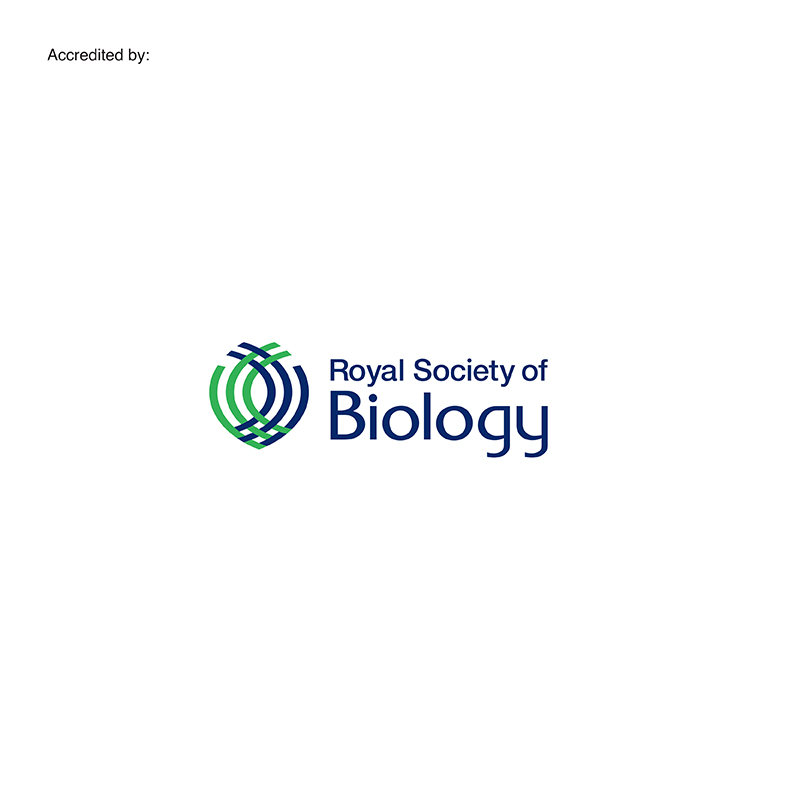
Biological Sciences

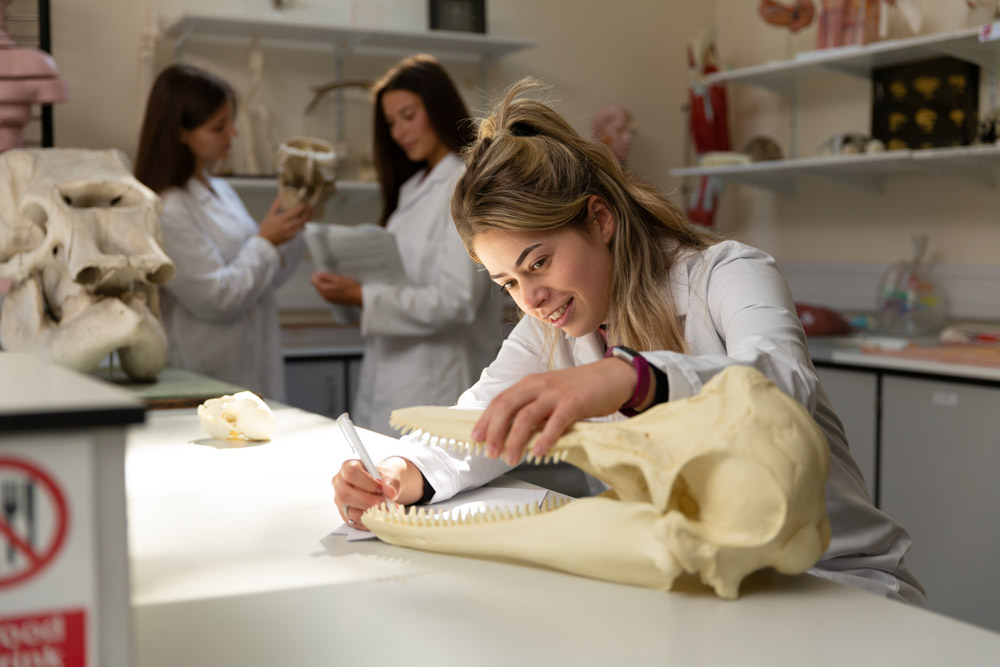
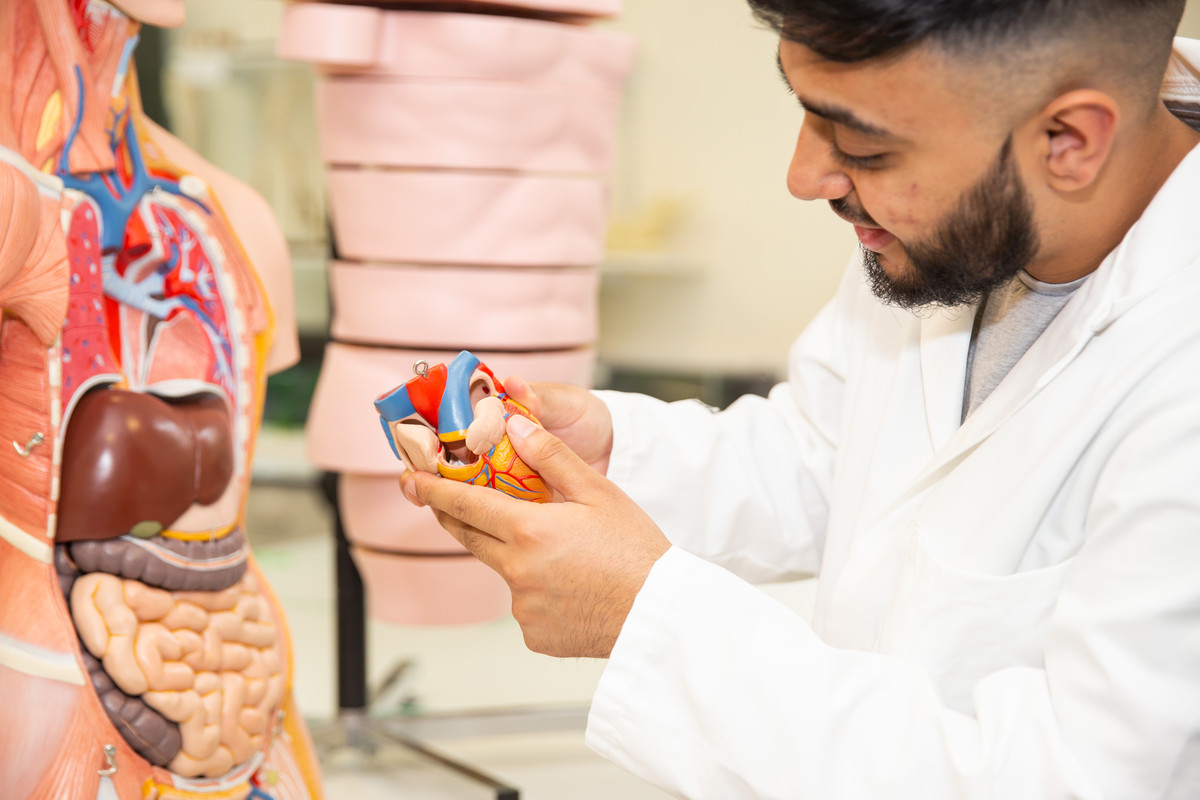
Accredited courses in a professional environment
The Royal Society of Biology recognises our Biology degree, which demonstrates that what you learn is excellent preparation for this field. Professional bodies set the benchmark for employee standards, so we build these standards into our degrees. Graduates automatically meet the educational requirements for Associate Membership of the Society.
We work with industry partners to inform course content and ensure that graduates have the skills and techniques they need for a successful career.
We have also invested in our labs to create a modern, purpose-built environment at USW. Our fully equipped Category II laboratories enable students to handle pathogenic bacteria and work with anatomical models and microscopes. Plus, our small class sizes ensure that you get all the support you need throughout your studies.
Research that makes a difference
USW Bioscience lecturers joined forces at the start of the pandemic to develop a new, rapid diagnostic test for COVID-19.
Led by Dr Jeroen Nieuwland and Dr Emma Hayhurst, the researchers adapted a technique they had been developing to diagnose urinary tract infections. Their test uses a different method and chemicals to the current accredited tests, so it’s low cost and quick, and avoids any supply bottlenecks for the components.
At USW you’ll be taught by our researchers, who bring their expertise from work like this directly into the classroom. Not only do they incorporate the latest knowledge into lectures, but it also allows our students to get one step closer to actual research with opportunities to get involved.
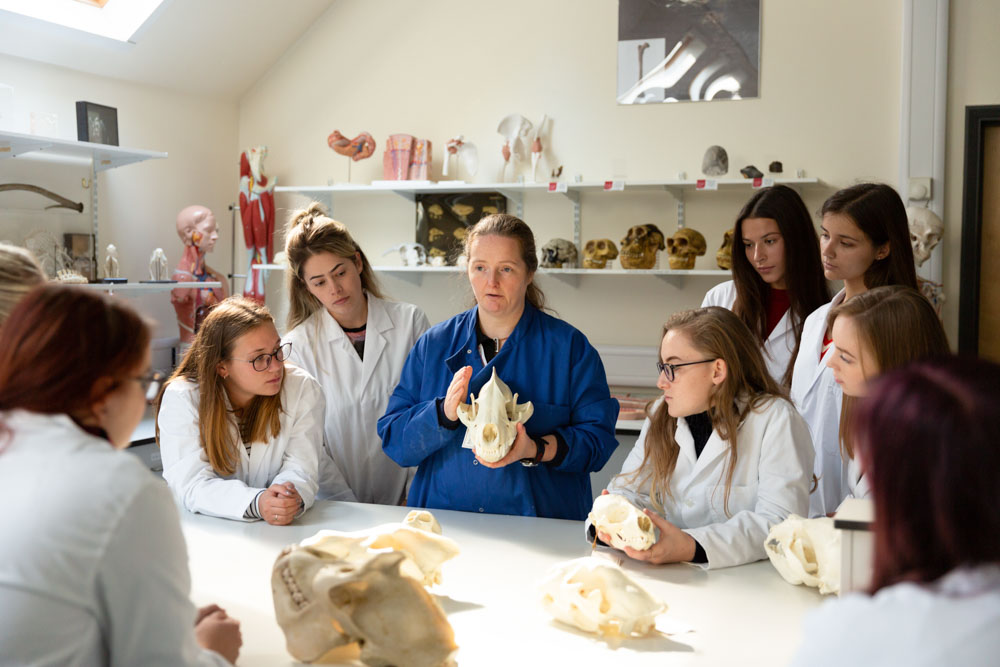
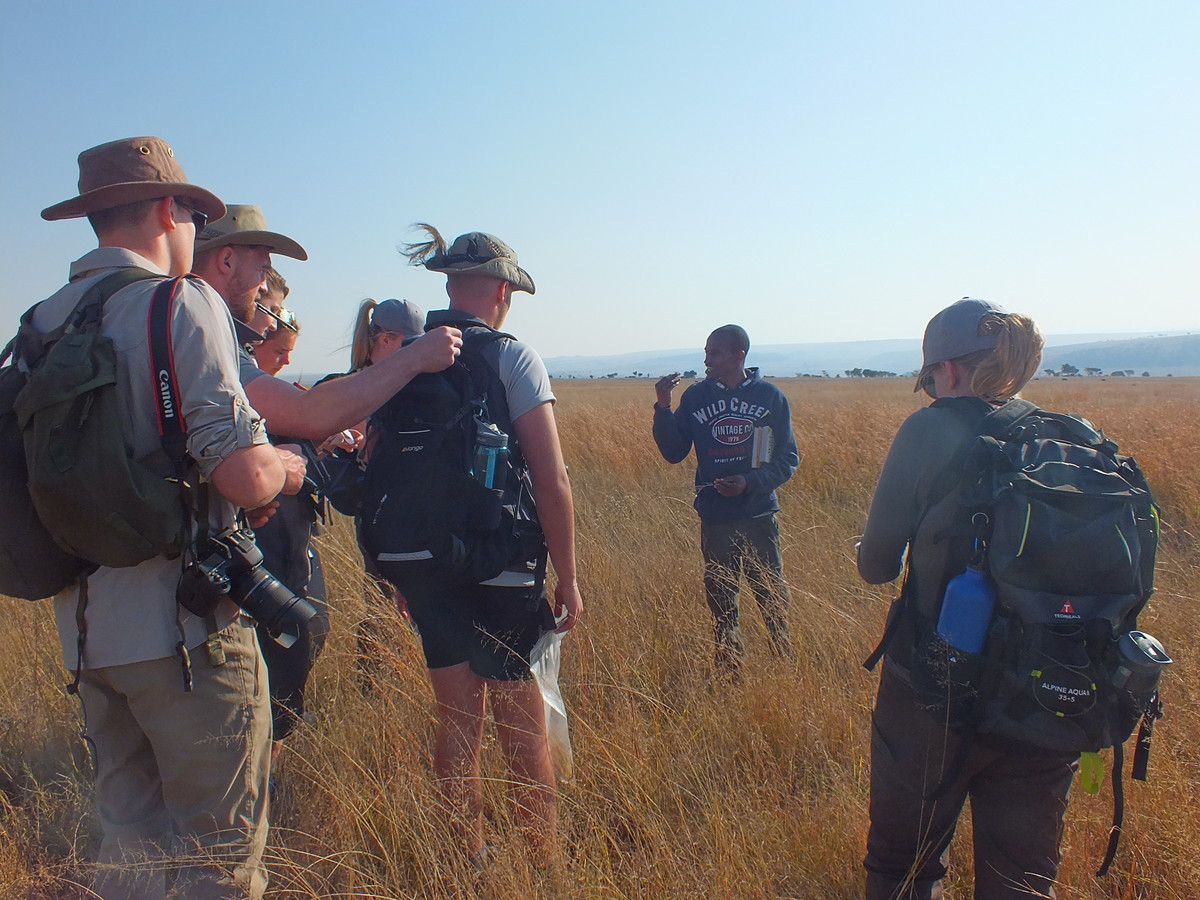
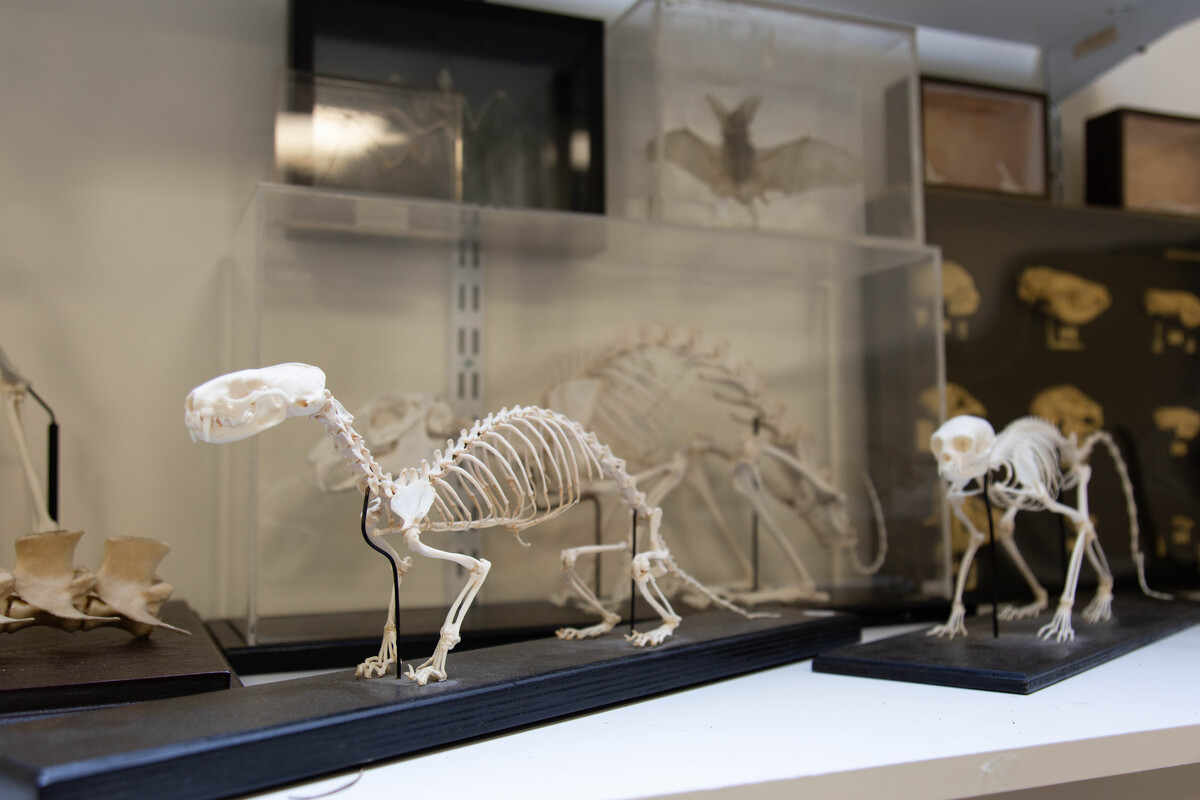
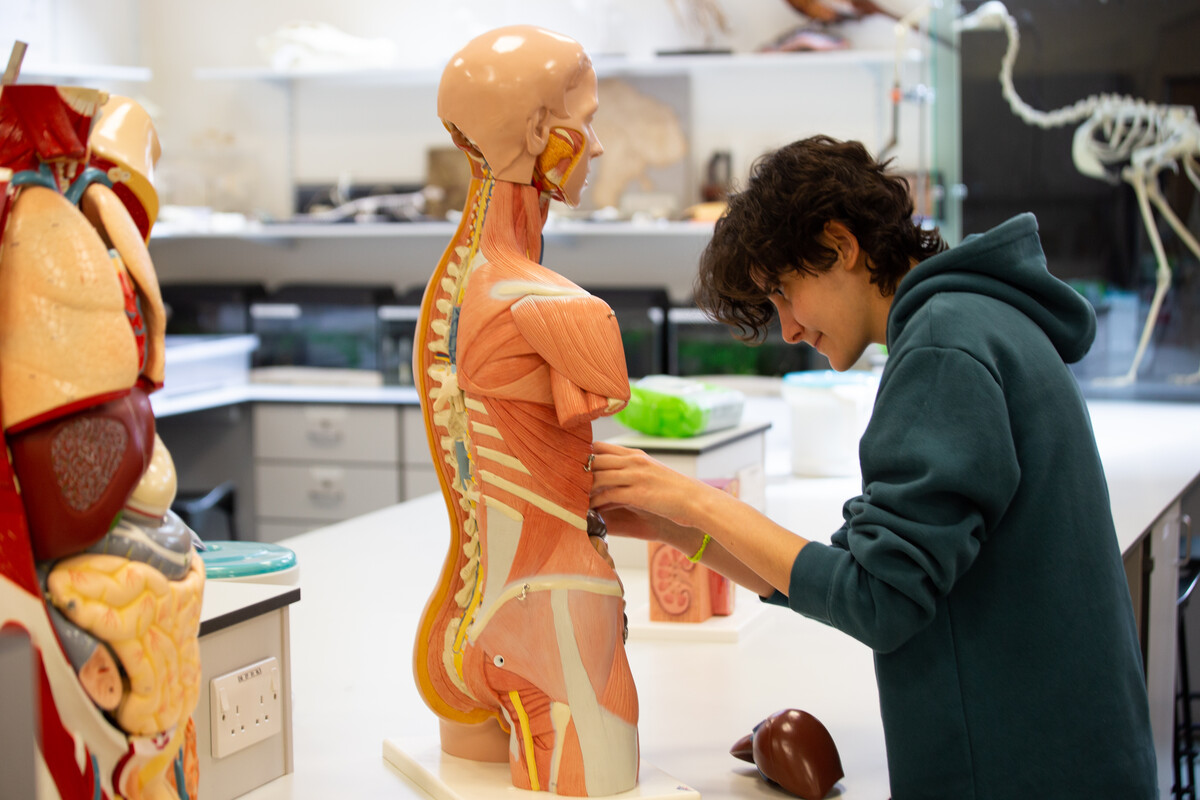
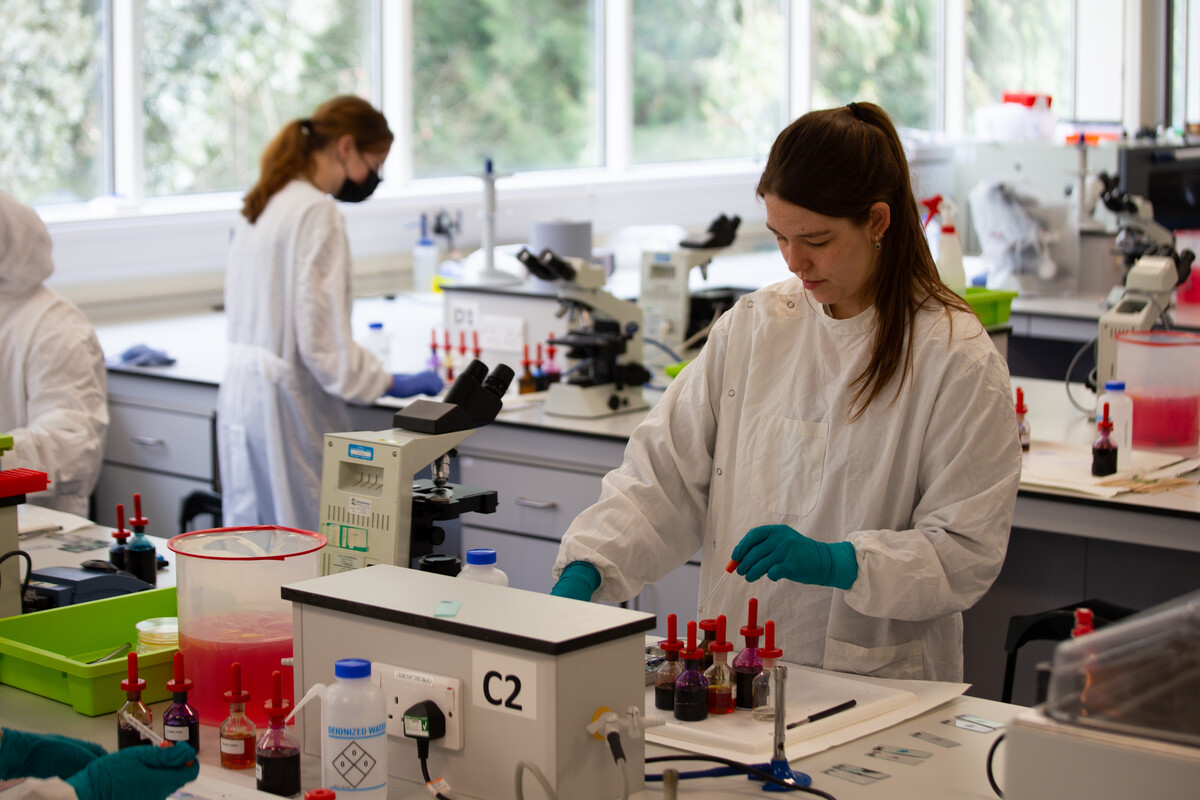
Practice and theory
We believe that practical sessions are the best way to learn. At USW, you’ll get plenty of lab time to develop your skills and confidence ready for the workplace.
Our courses offer exciting fieldwork opportunities too. As well as making use of the varied habitats on our doorstep, you may travel much further afield. In recent years, locations have included South Africa, Mexico and, more locally, the Brecon Beacons and Pembrokeshire National Parks.
Our International Wildlife Biology course is the only one of its kind in the UK, with opportunities for learning on three continents, with a field trip in South Africa to study African wildlife and its management.
Faculty of Computing, Engineering and Science (FCES) Travel Bursary
The FCES travel bursary is for any University of South Wales student studying a relevant undergraduate sandwich degree in the Faculty of Computing, Engineering and Sciences (FCES).
Worth £500, this one off, non means tested bursary is given to all students starting their sandwich year as part of their FCES degree course. The bursary is intended to provide financial support towards your travel costs to and from your sandwich placement.
Course list
Forensic Sciences
Industry links and accreditation
All our degrees are fully accredited by the Chartered Society of Forensic Sciences. This professional accreditation demonstrates the high quality of our course content, teaching facilities and teaching staff.
Our courses have a strong focus on employability, studying the entire process from crime scene to court, and the teaching team includes forensic practitioners. Staff expertise covers DNA analysis, bloodstain pattern analysis, forensic toxicology, crime scene investigation and chartered chemists.
Practical skills and learning
Forensic Sciences at USW are highly practical. Our students learn about the forensic techniques used to solve crimes and our small class sizes ensure you’ll get all the support you need. Our Forensic Science degrees are rated Top 15 in the UK by the Guardian University Guide 2023
Our MSci courses combine Bachelors and Masters’ level modules in one integrated package. These four-year courses allow top-performing students to gain advanced professional and technical skills. There are many benefits to this qualification, including fast-tracking your career, a wider range of career pathways, and more professional skills for your CV.
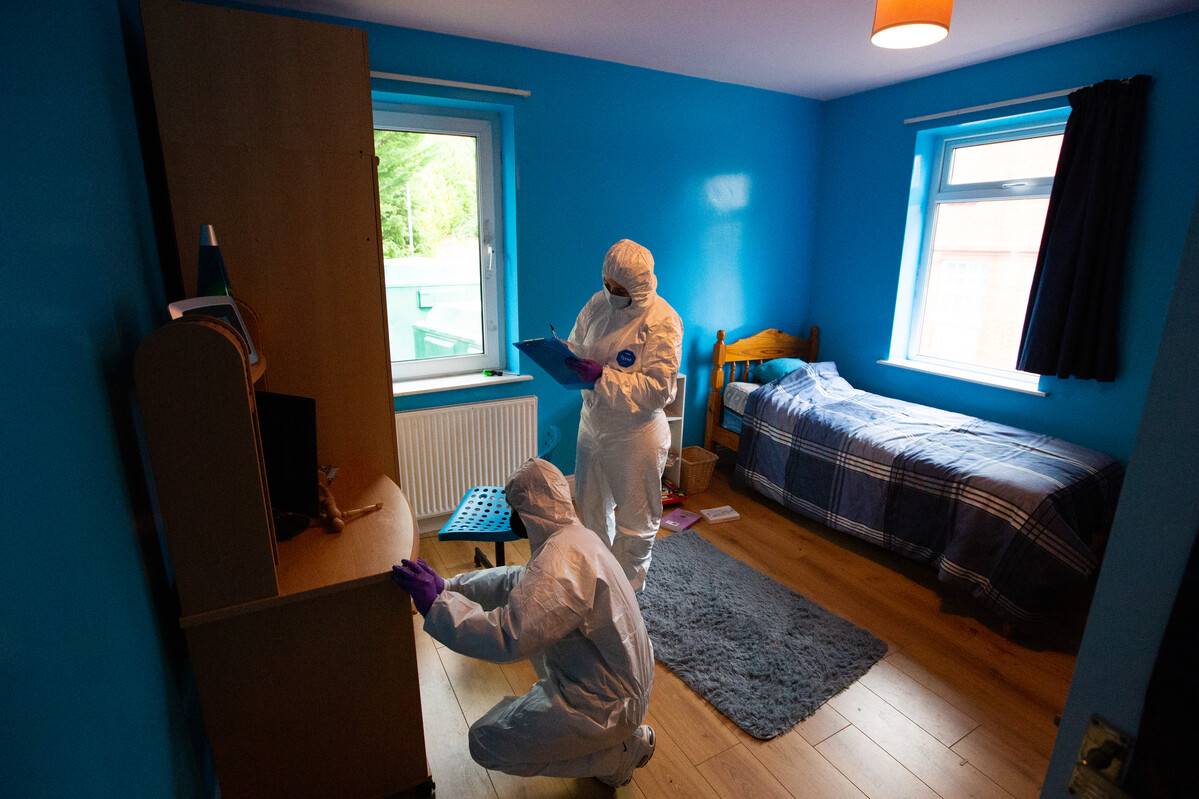
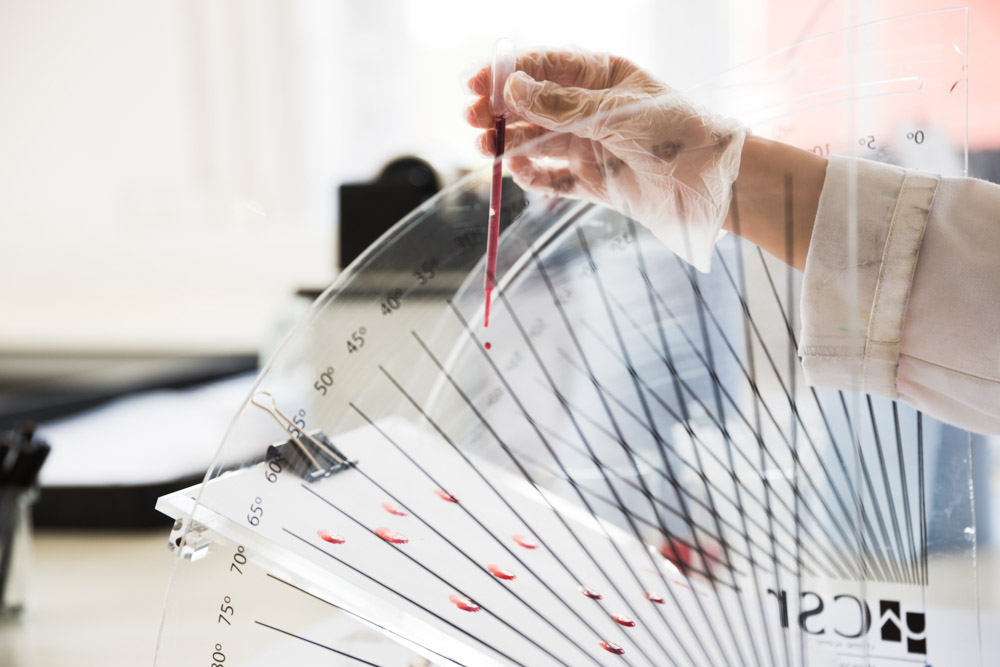
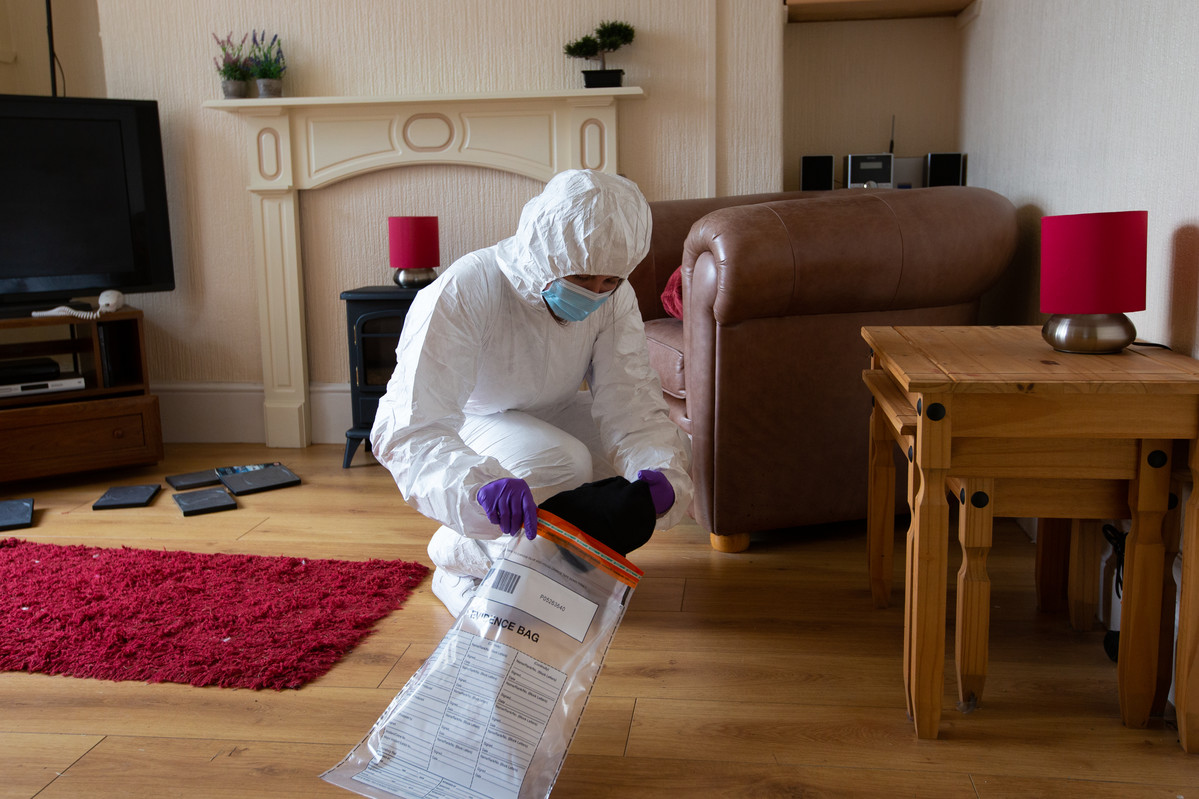
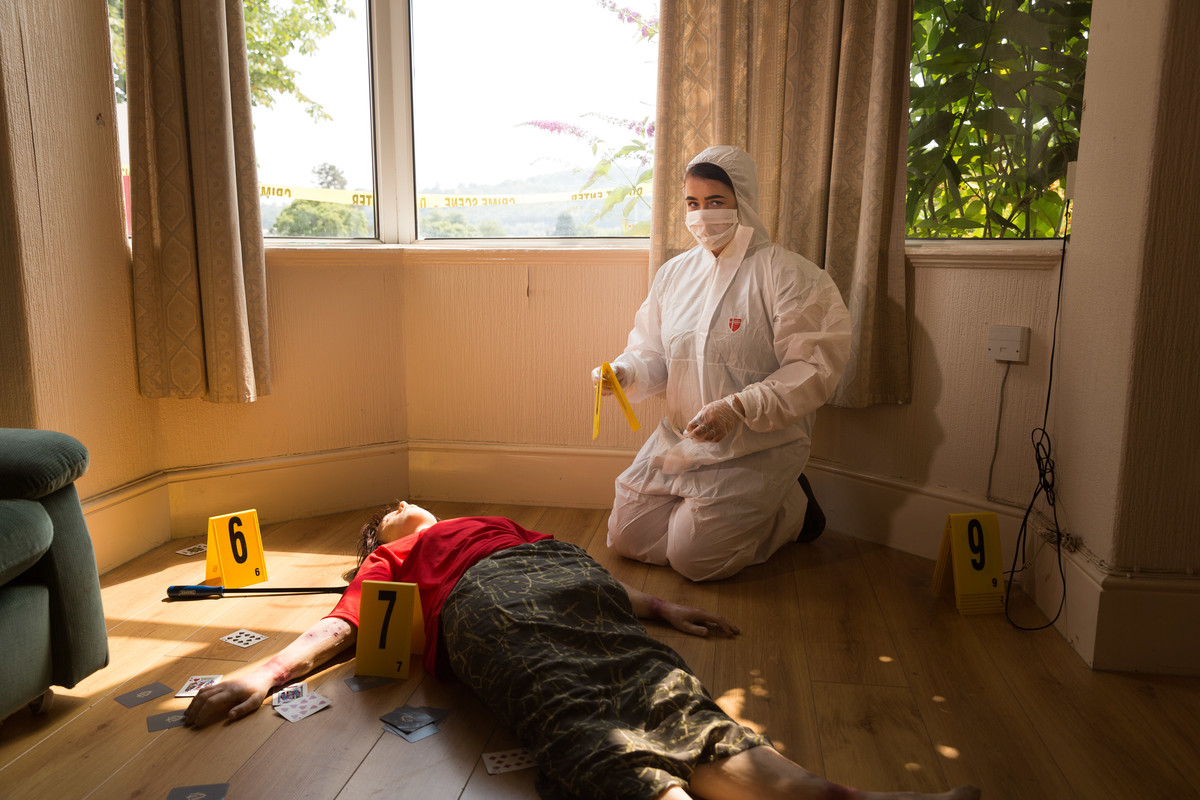
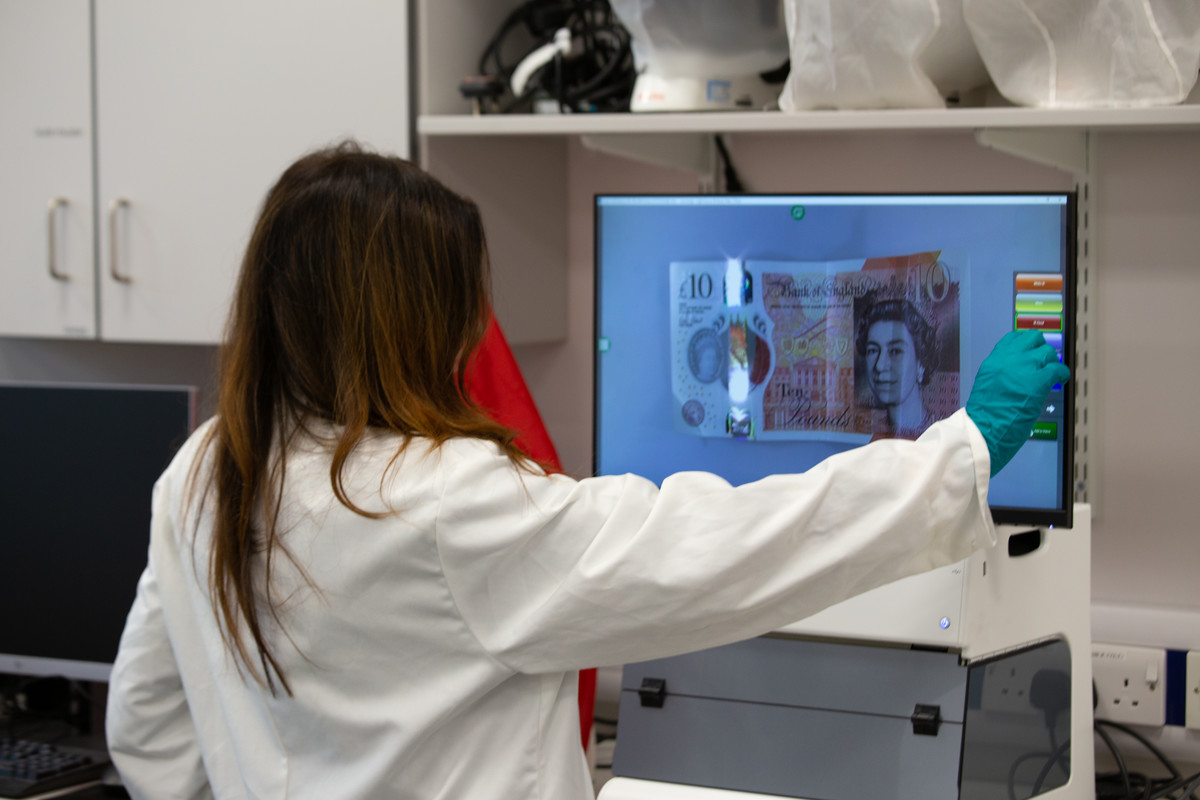
Professional facilities
Studying at USW means you’ll have access to specialist laboratories and instrumentation. Students gain practical skills in volume crime scene examination, analysis of forensic evidence, and courtroom simulations. Our facilities also include fluorescence spectrometers, optical emission spectrometers, and gas and liquid chromatographs.
Our forensic labs have sector-standard instruments such as ESDA, GRIM and VSC for use in simulated casework practical training and research projects. We have a dedicated student research laboratory and two specialist laboratories for performing nuclear magnetic resonance (NMR) spectrometry and scanning electron microscopy. There’s also a Crime Scene Training Facility on campus, which simulates major crime scenarios for practical learning.
Medical Sciences
Routes into medicine
Medical Sciences at USW is primarily a degree for students who want to become medical doctors. Every year, there are ten places available on the A101 medicine programme at Cardiff University for suitably qualified graduates of this course and our graduates are also able to progress to graduate entry medicine at other universities.
Subject areas range from anatomy and physiology to clinical skills and health policy, reinforced by applying theory to clinical scenarios. You’ll study topics as diverse as tropical medicine, clinical practice or biological anthropology, with the chance of being selected to take part in human dissection.
Clinical experience and hands-on study
A key feature of our Medical Sciences course is the application of scientific knowledge to clinical scenarios using simulation and case-based learning.
Throughout the course, you’ll gain hands-on clinical training and research experience, as well as intensive work placements in local NHS facilities. These provide first-hand experience of medicine and healthcare in a range of departments and disciplines, helping you make informed decisions about your career.

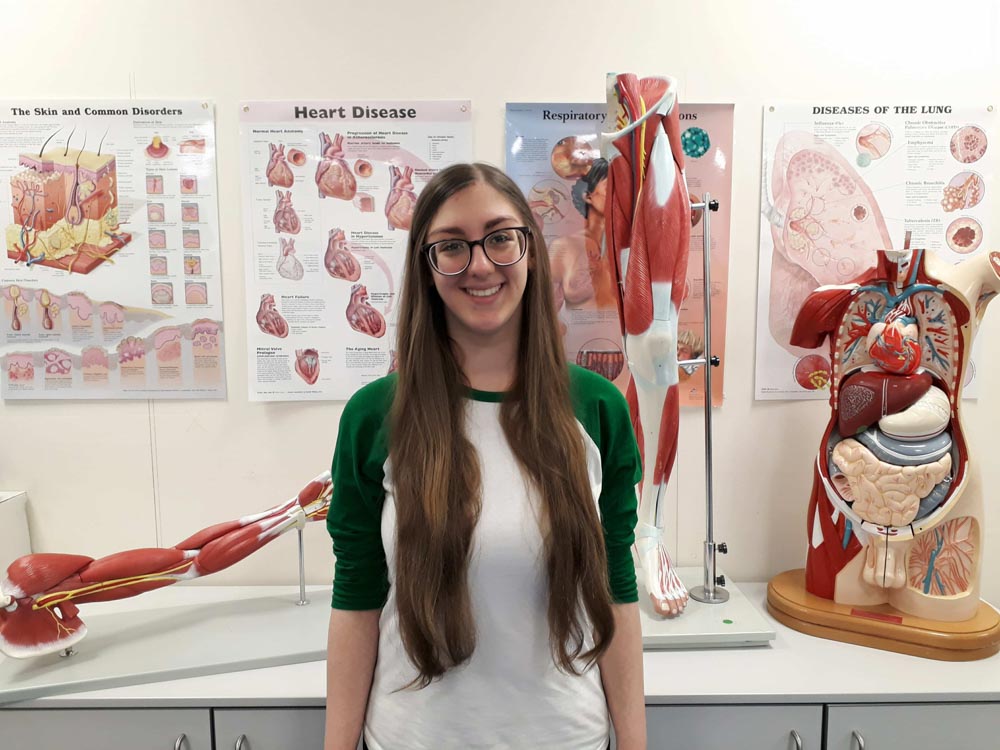
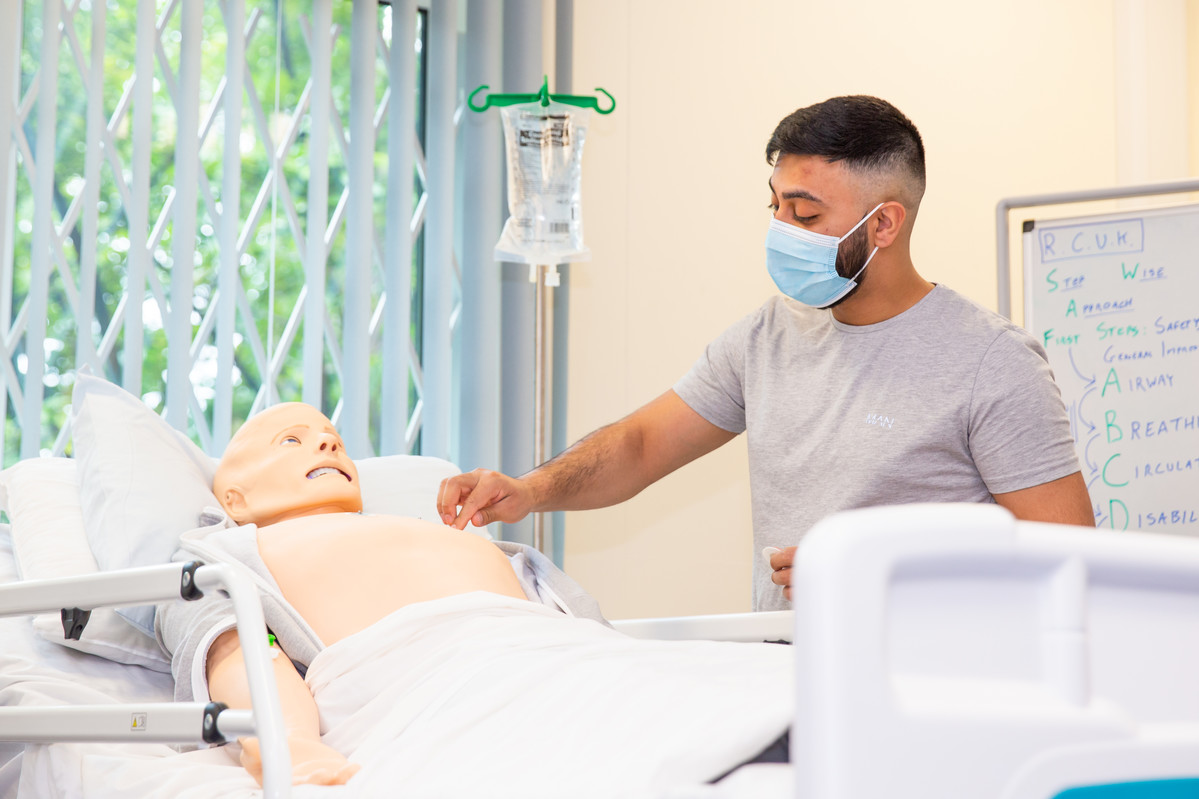
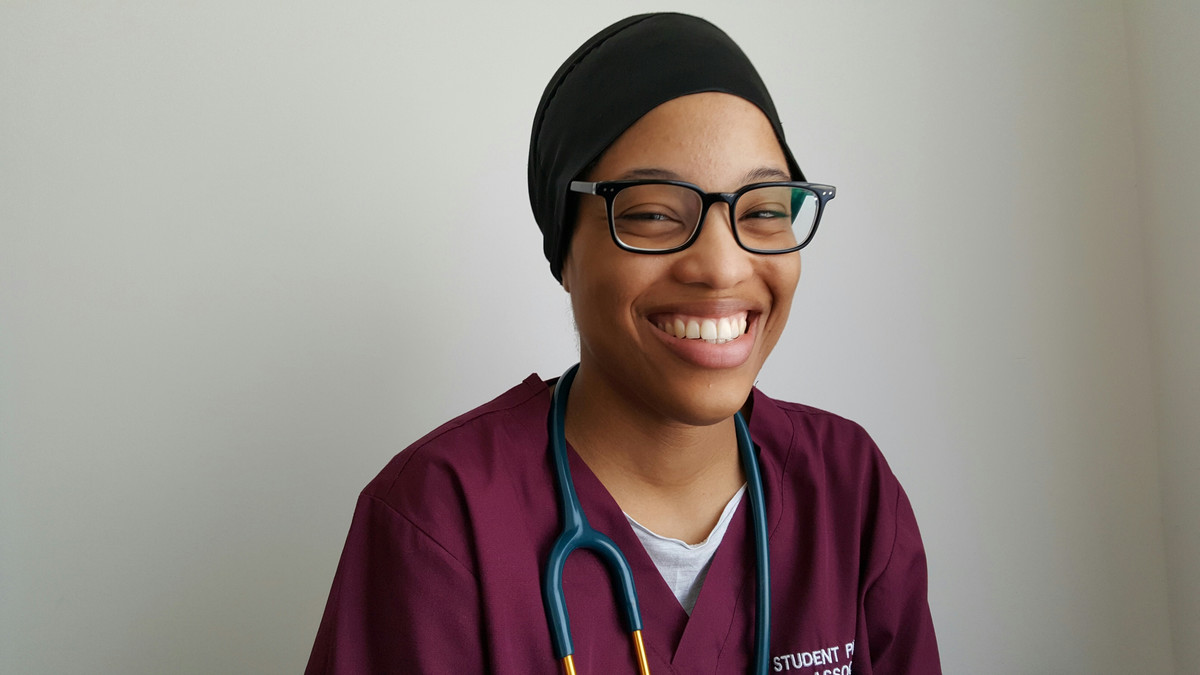
Medical Preparation Society
USW has a supportive mentorship for medical applications through the Medical Preparation Society. Led by students and alumni, they host events to improve your clinical skills for mock entrance exams. The Society also provides support with university work and examinations, ensuring you understand what is expected of you in your course to help you get into graduate entry medicine.
The Society also attends the Pre-hospital Emergency Medicine Scheme, hosted by Cardiff University School of Medicine, which is an opportunity to mix and build links with current medical students.
Course list
Pharmaceutical Science
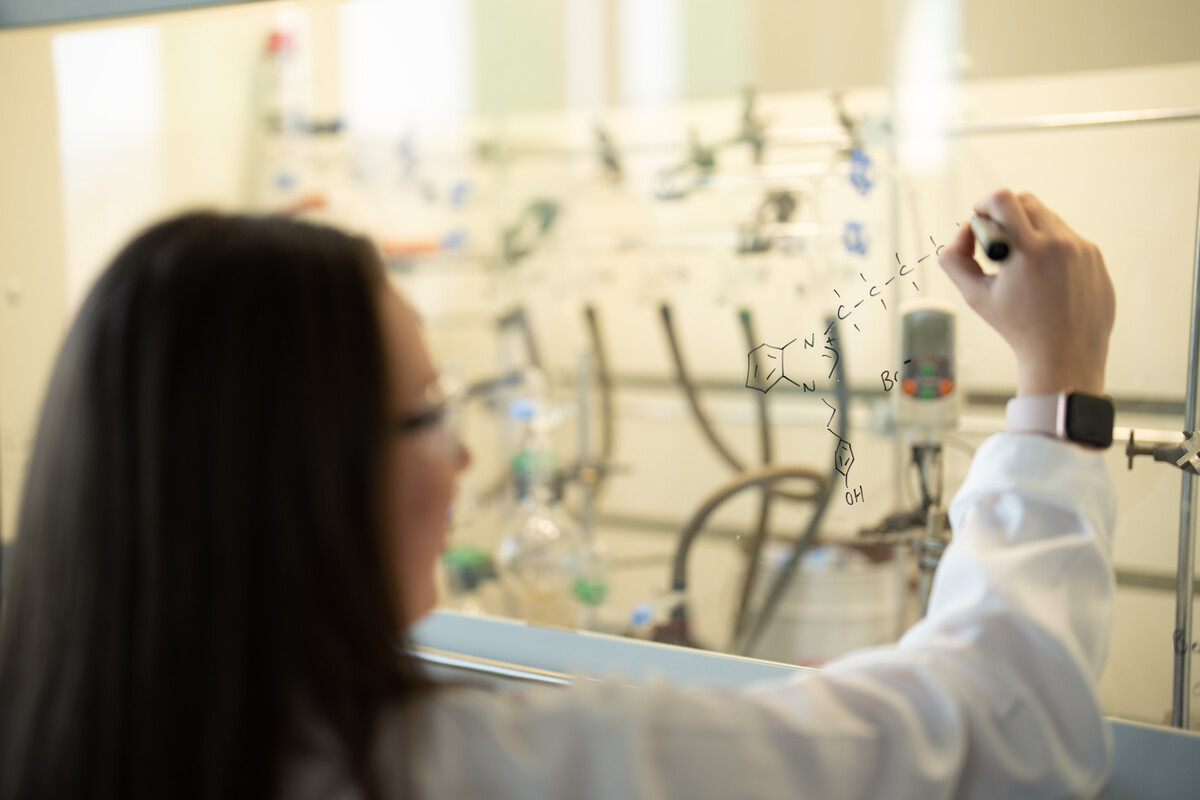
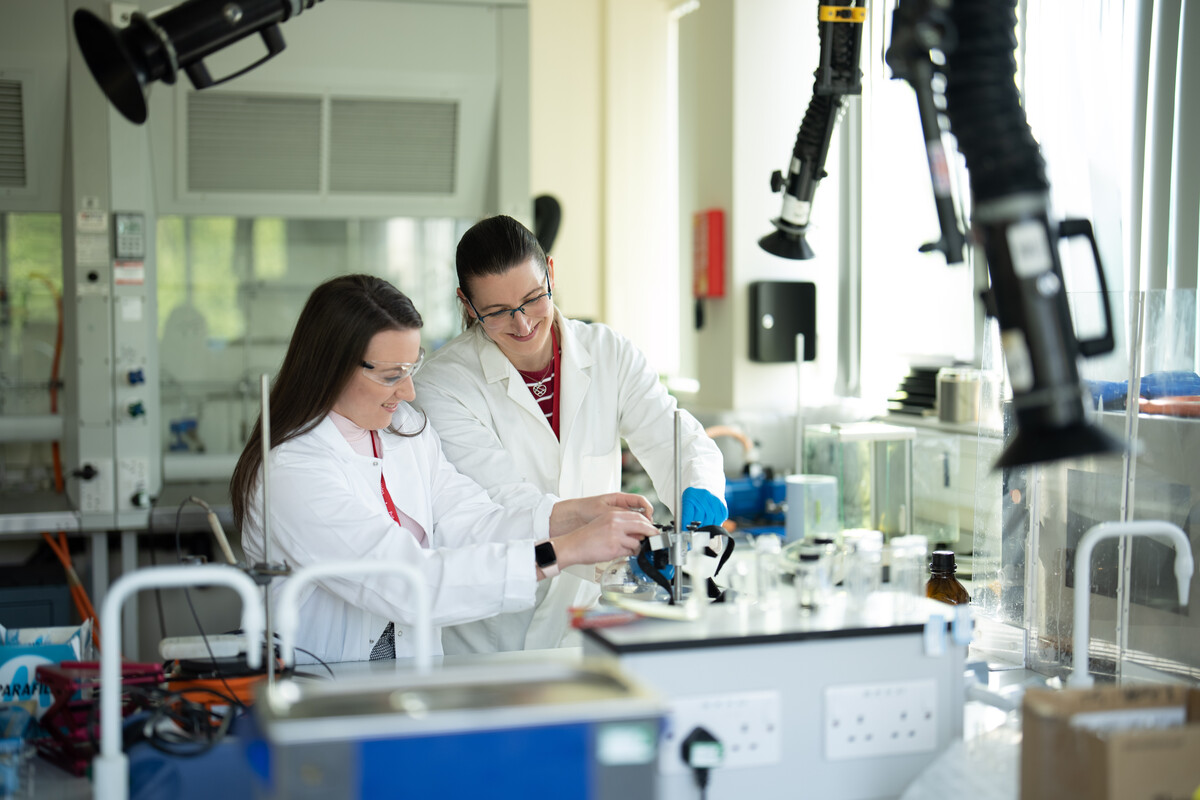
Professional facilities
At USW we focus on the practical skills and experience you’ll need in professional laboratories. Our George Knox laboratories are part of a £15m investment in science at USW. With a whole floor for chemistry and analytical facilities, our chemistry facilities are on a par with those found in industry.
We have modern, well-equipped laboratories for bench practical skills, as well as several analytical and pharmaceutical instrumentation laboratories. You’ll use these industry-standard labs throughout your course, gaining hands-on experience learning new techniques and using the analytical equipment.
Student satisfaction and support
You’ll get all the support you need during your studies thanks to our personal academic coaching system and our tailored class sizes. Our laboratory activities are designed to ensure you receive a more personal practical experience when using our sophisticated, industry-specific instruments, with training provided by experts in their fields.
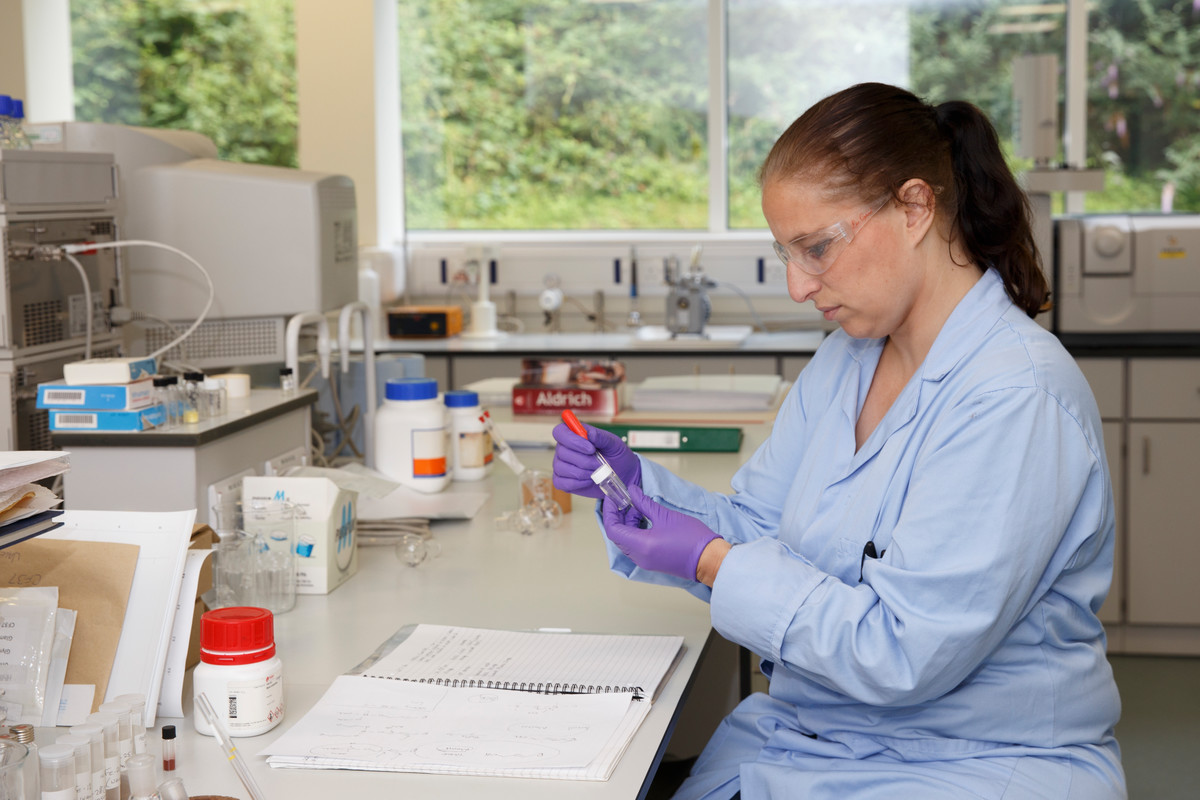
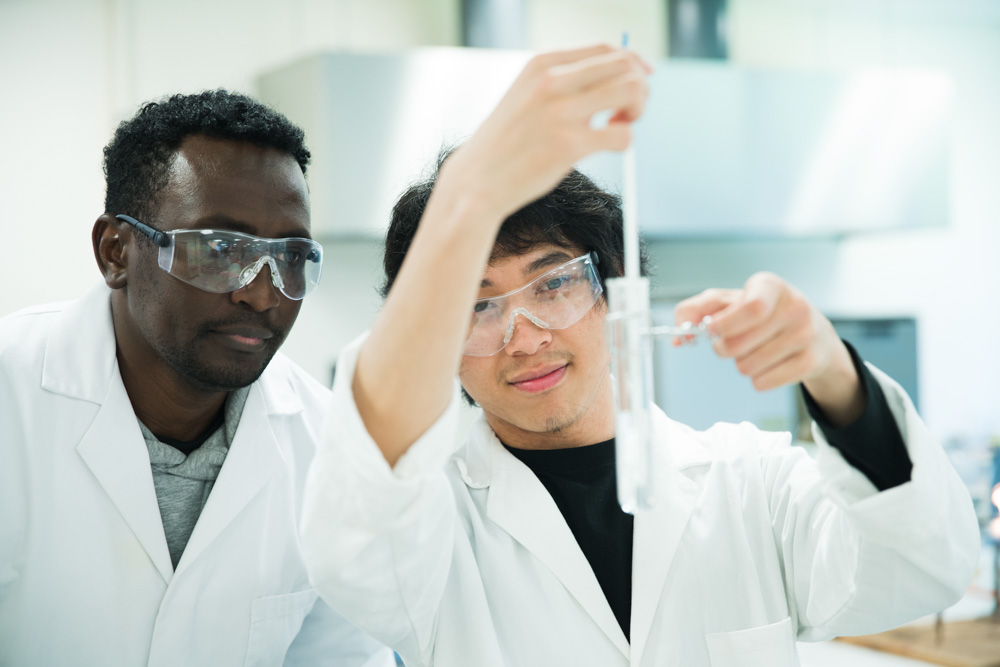
Excellent graduate prospects
Skilled pharmaceutical and chemical science-based graduates are in high demand across the chemical, life science, and pharmaceutical sectors. Employers are impressed with our students’ experience, and confidence in the laboratory, especially of analytical methods and equipment. Our graduates’ reputation with employers ensures good employment outcomes for our future students.
We work closely with industry to inform the processes and techniques that you learn. All students are encouraged to spend some time in the workplace as part of their degree to help inform their career choices and help them understand what is required of new graduates. You’ll see first-hand how theory applies to the industry, from the synthesis of novel target compounds to the quality assurance manufactured products.
Environmental Sciences
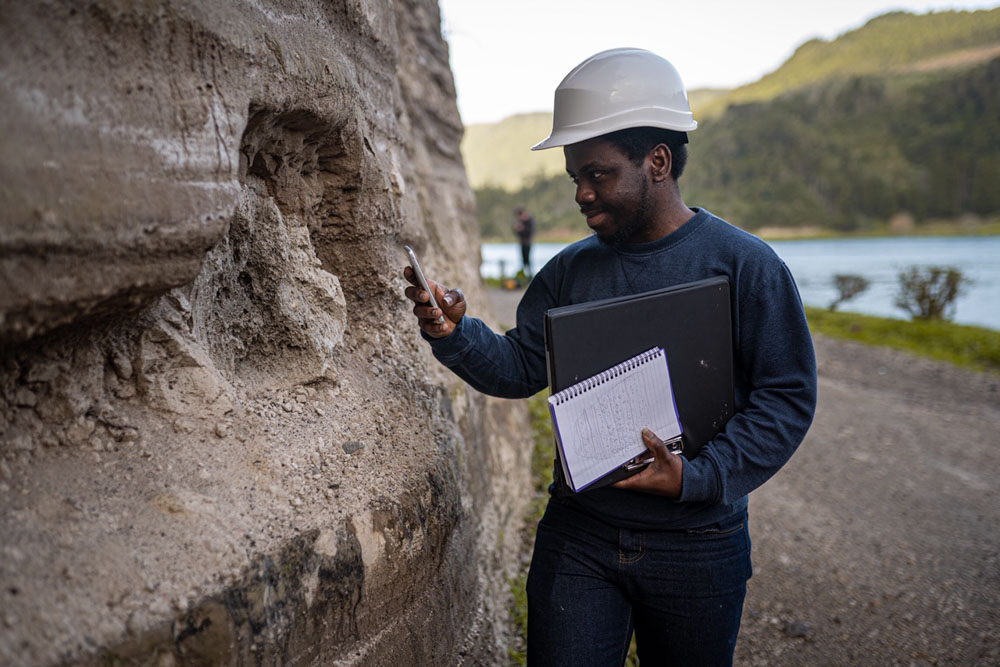
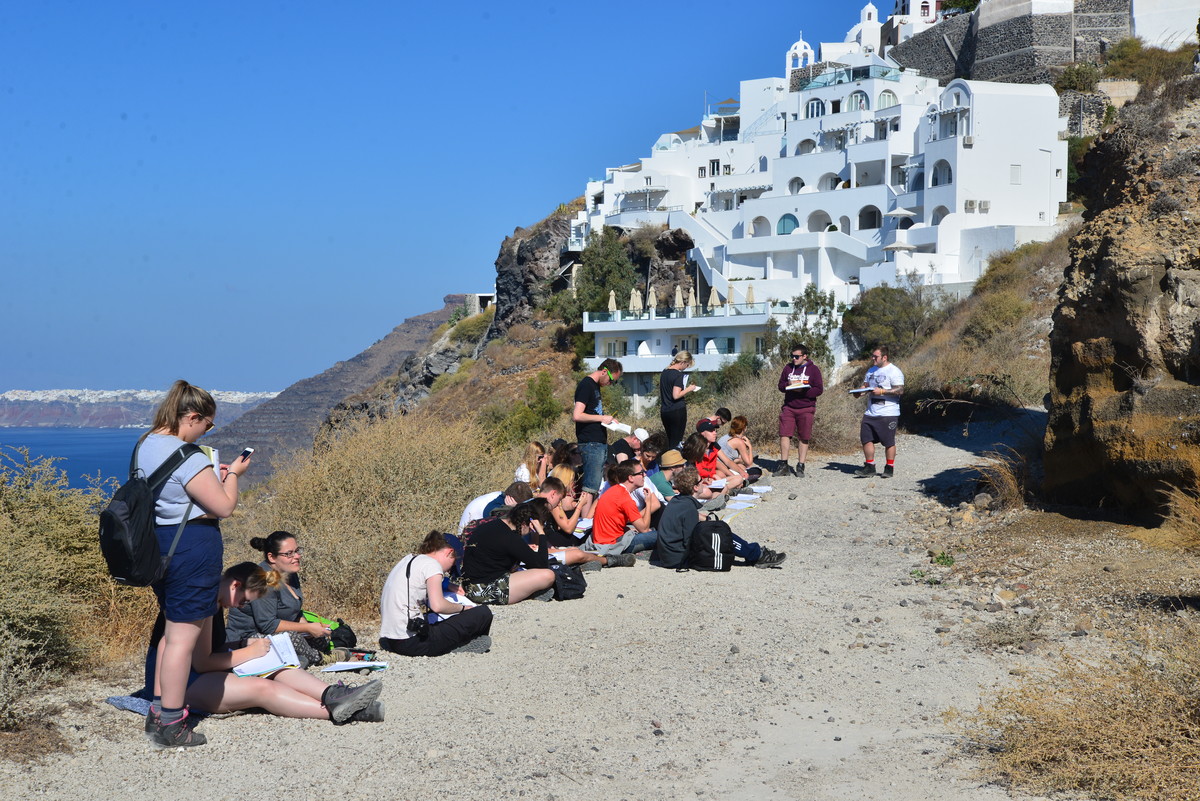
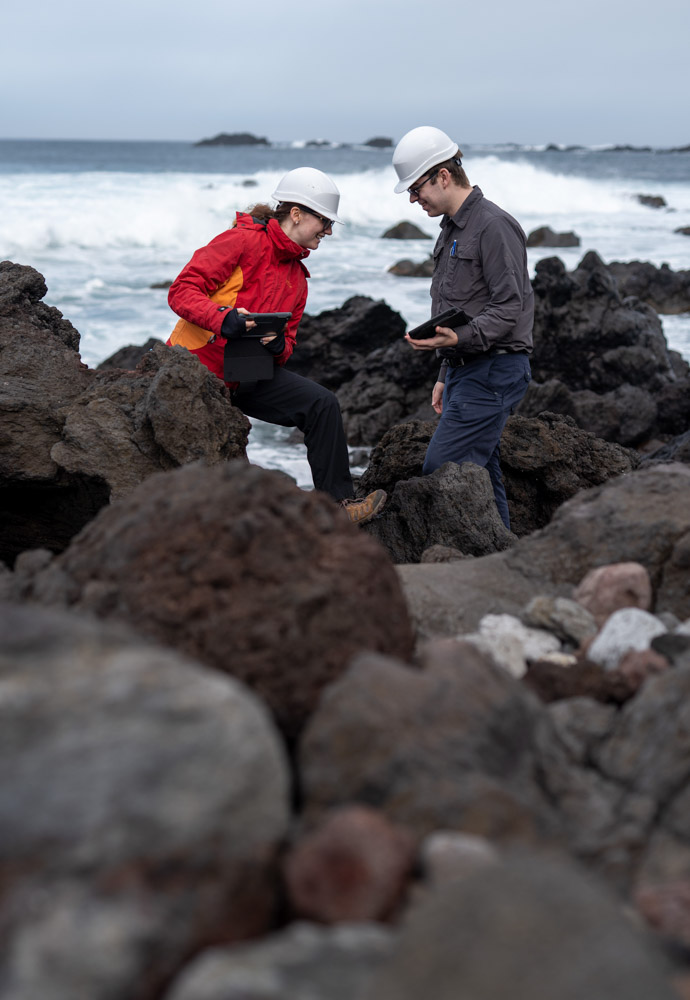
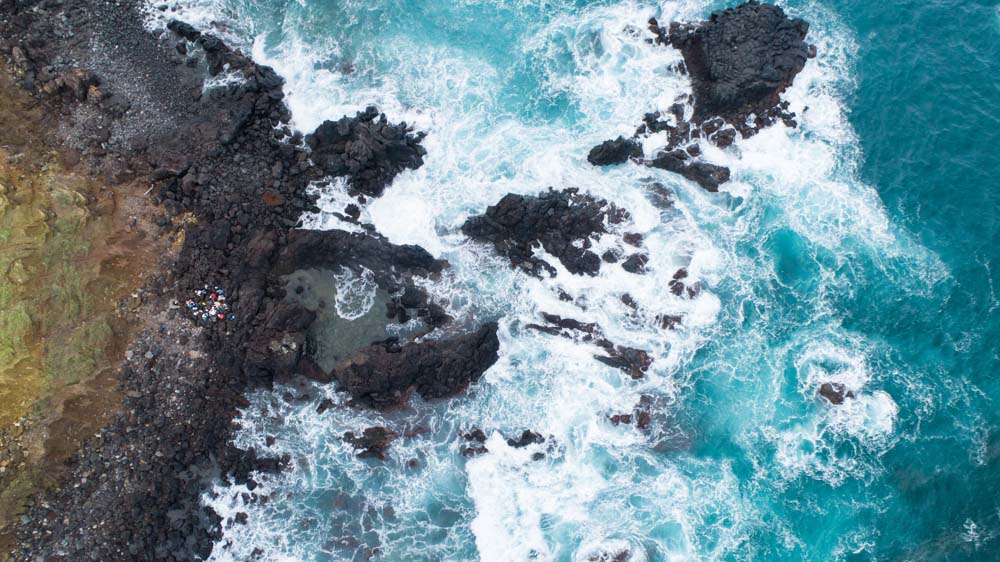
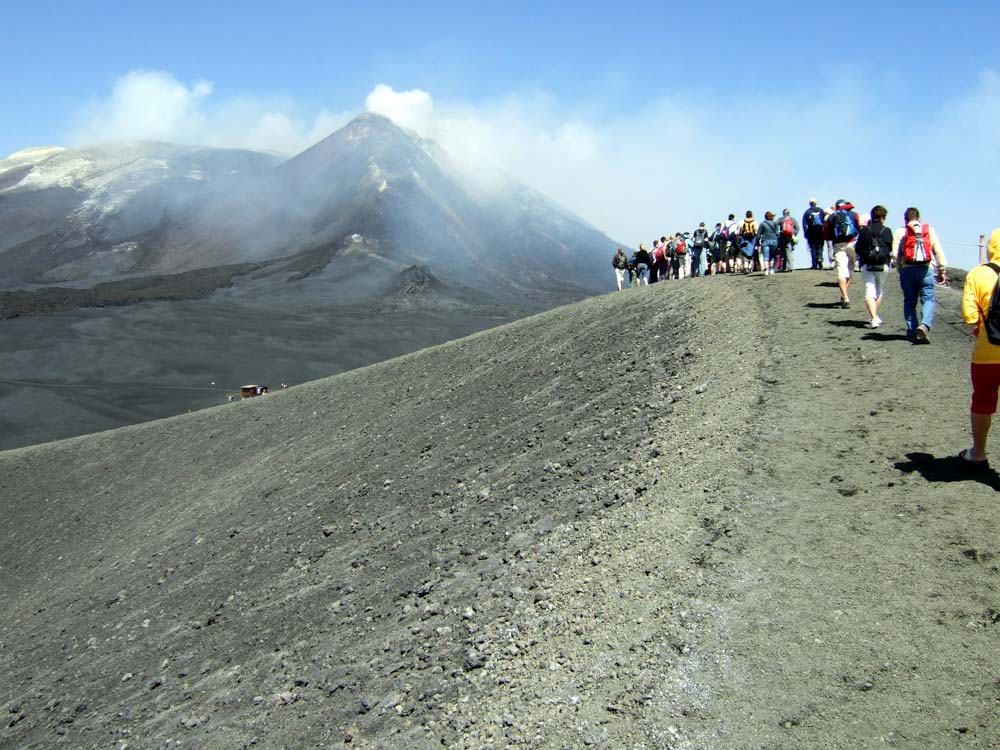
Fantastic fieldwork
We concentrate on the putting theory into practice through fieldwork, bringing to life what you learn in the classroom. Few degrees offer you the opportunity to get out in the field so quickly and as regularly as ours. Learning in, and through, these diverse locations will provide unforgettable experiences and essential skills.
USW is in a great part of the UK for fieldwork and environmental experiences. Cardiff, Wales’s capital city, the Brecon Beacons National Park, and the Glamorgan Heritage Coast are all nearby and provide a natural laboratory for study.
We offer a rich and diverse international portfolio of fieldwork too – our students have gained field experience in Portugal, Iceland, Greece, Thailand, the Caribbean, Botswana, Spain and Uganda.
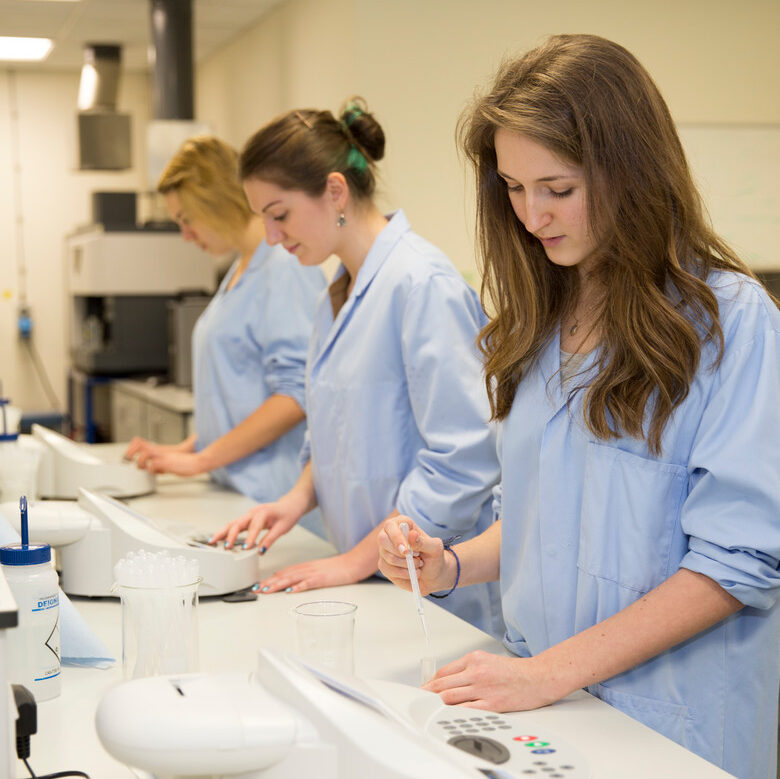
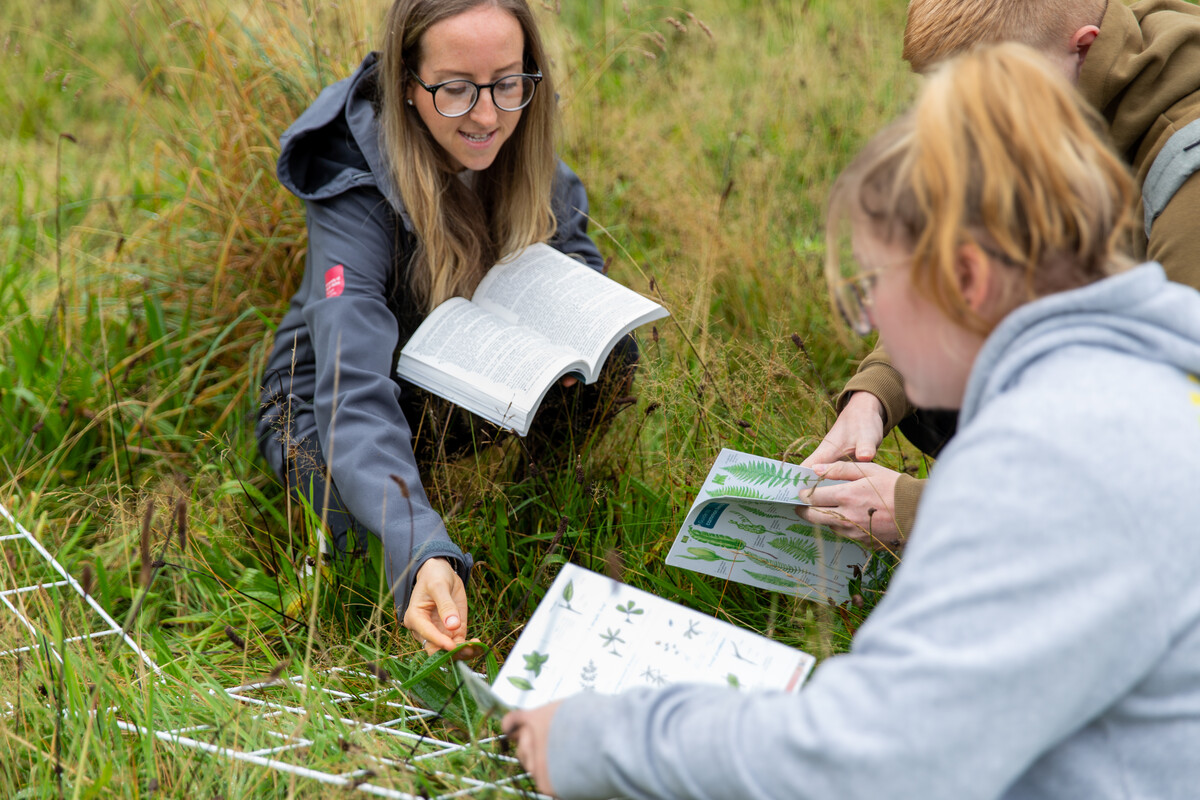
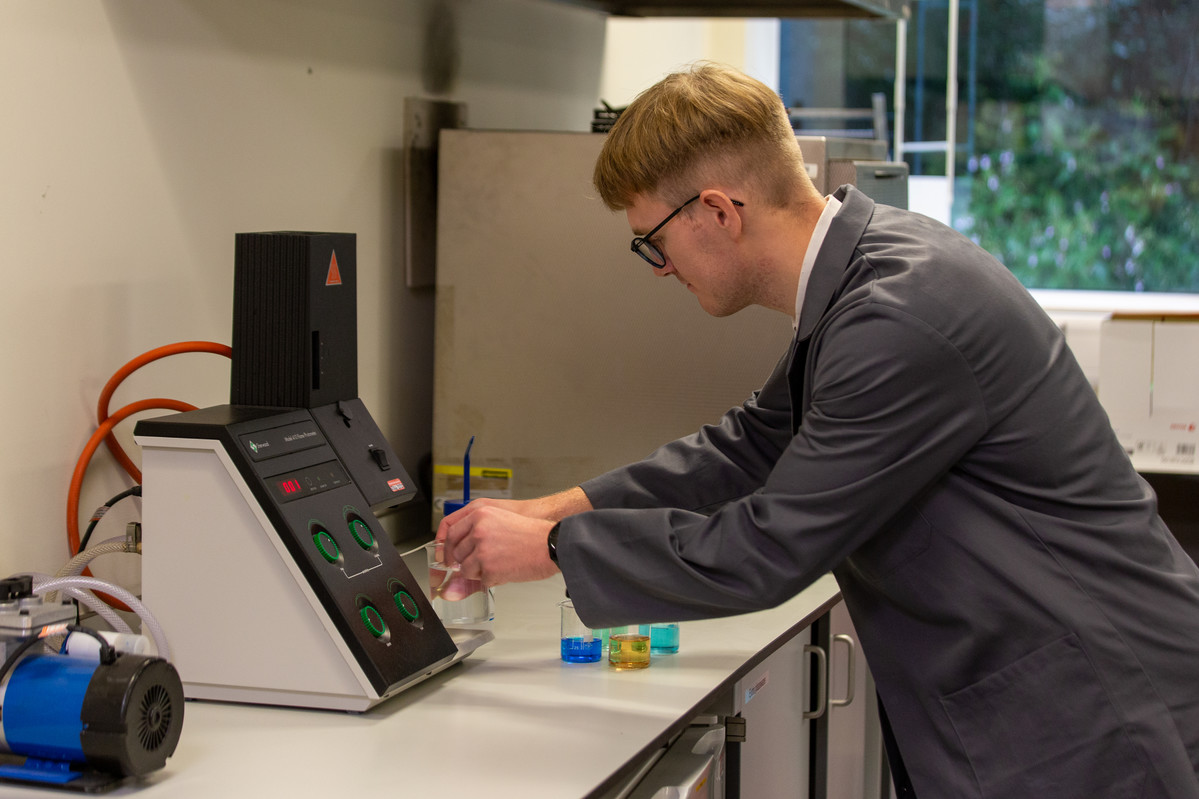
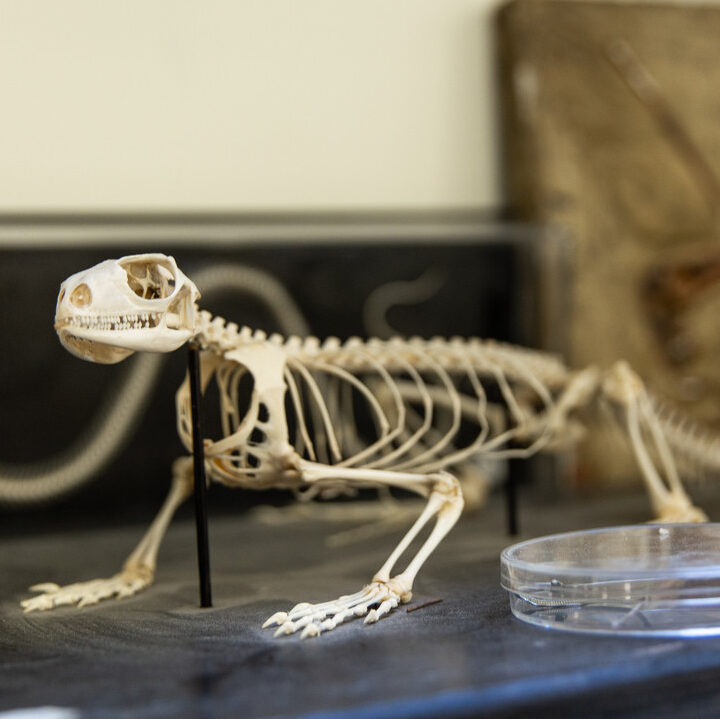
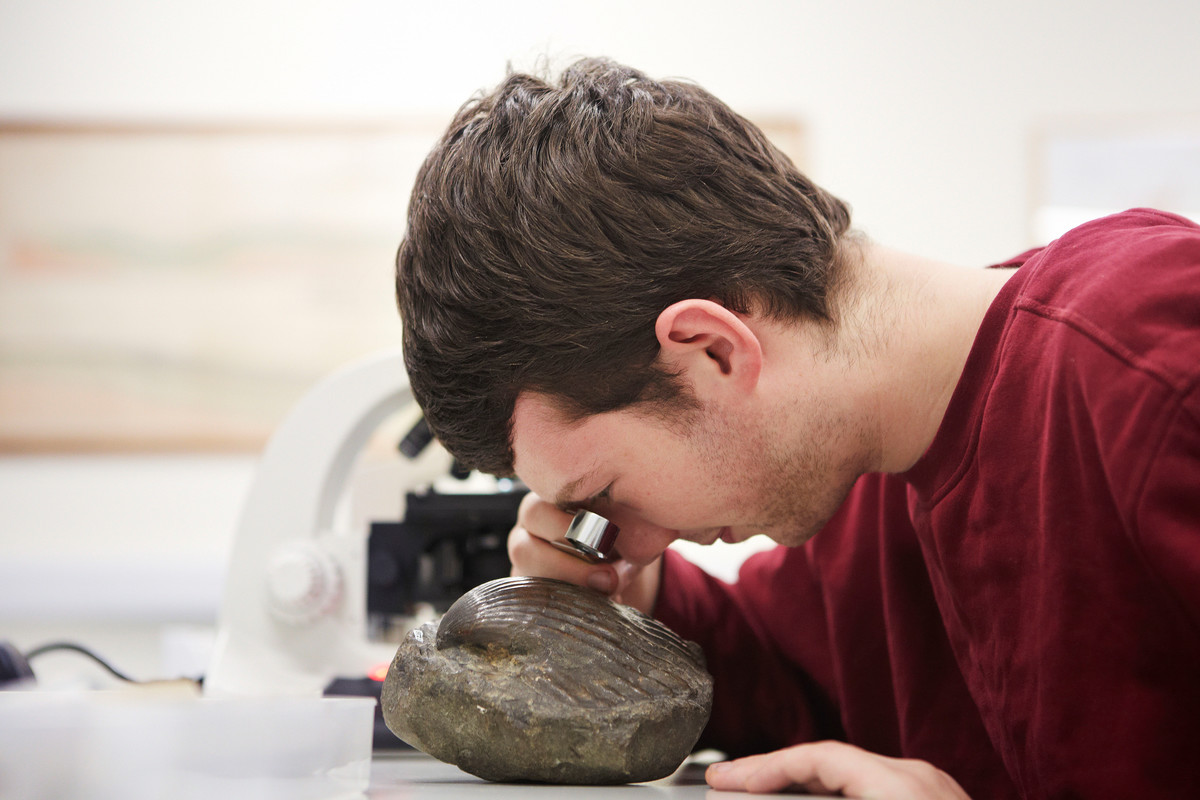
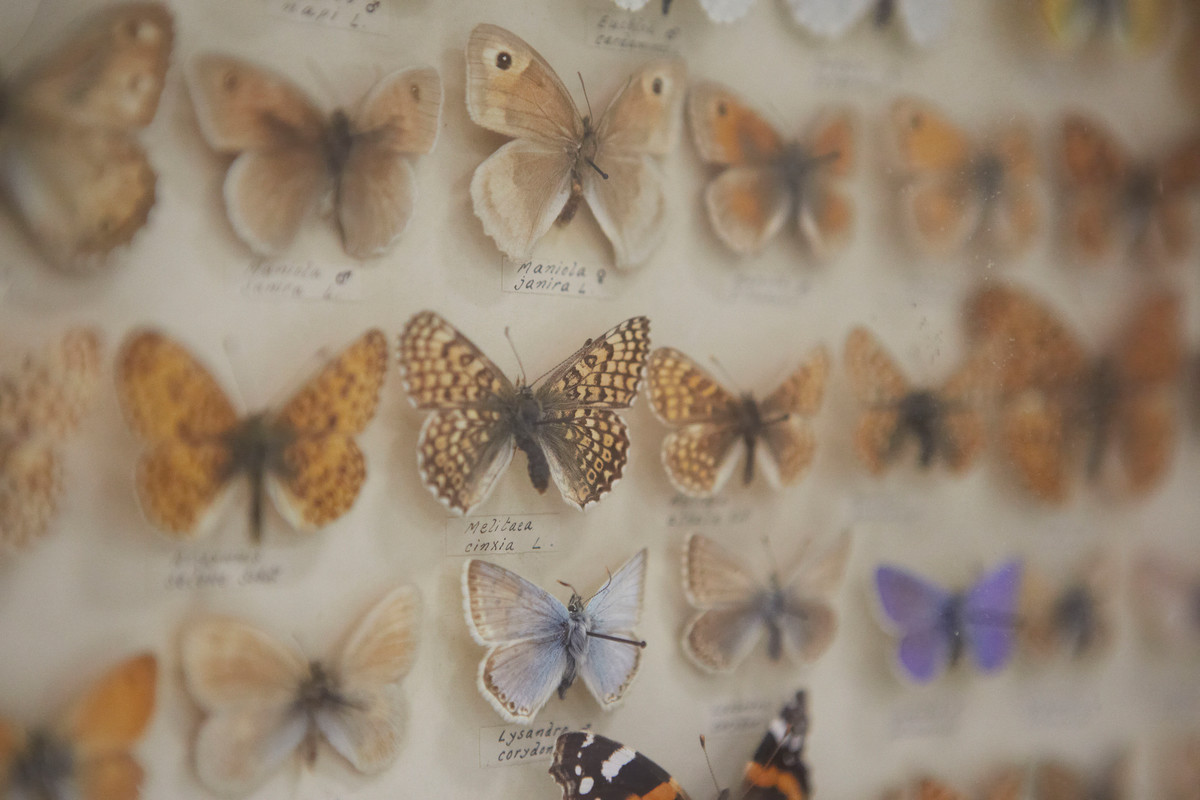
Professional facilities
We offer study that’s rich in experience, gaining skills and developing professionalism. You’ll have hands-on access to industry-standard equipment to learn survey and analytical methods that will benefit you in the future. This specialist research and specialist software currently includes ArcGIS, RAMAS, RockWorks, MAVIS, Move, ERDAS and IT laboratories.
There are two dedicated laboratories on campus, with a large suite of transmitted light petrological microscopes, and an extensive rock and fossil collection for practical sessions. We also have facilities for geochemical analysis using our Scanning Electron Microscope (SEM) and wet chemistry laboratories.
Our students also have a dedicated Mac lab for editing their photography and video, along with access to a range of equipment that includes DSLR and video cameras.
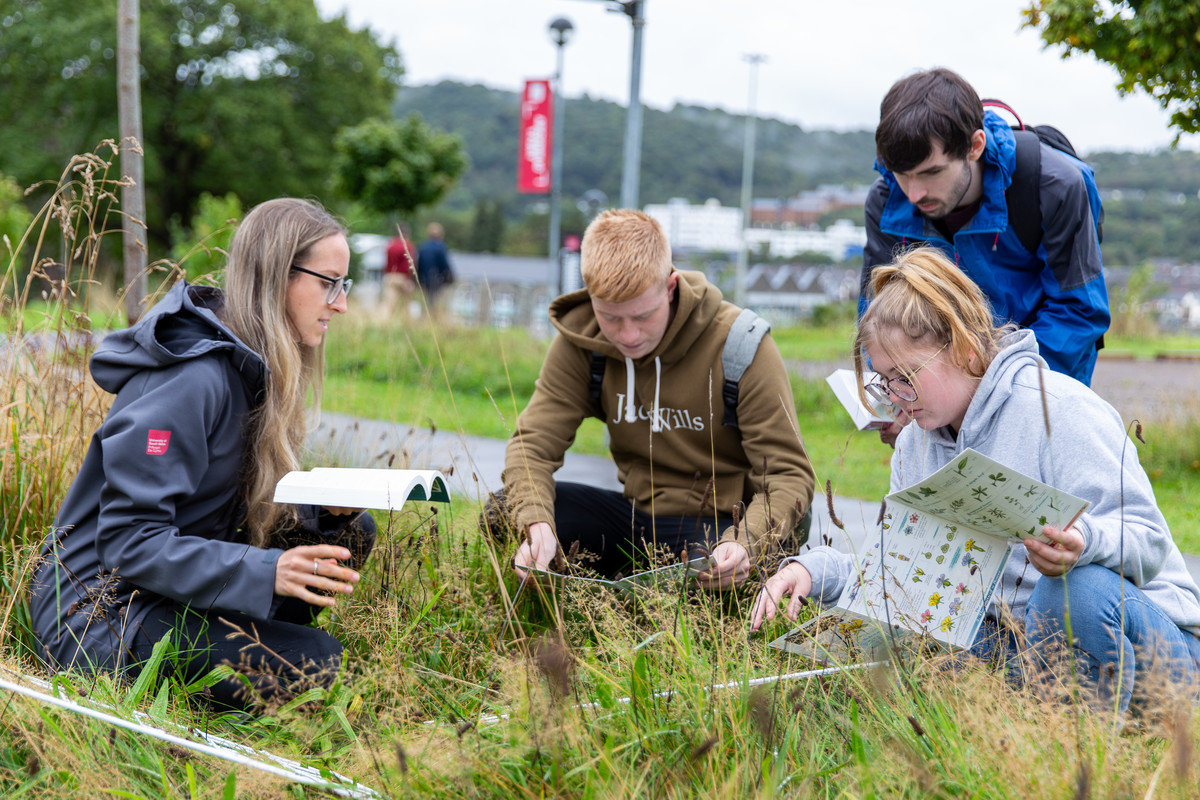
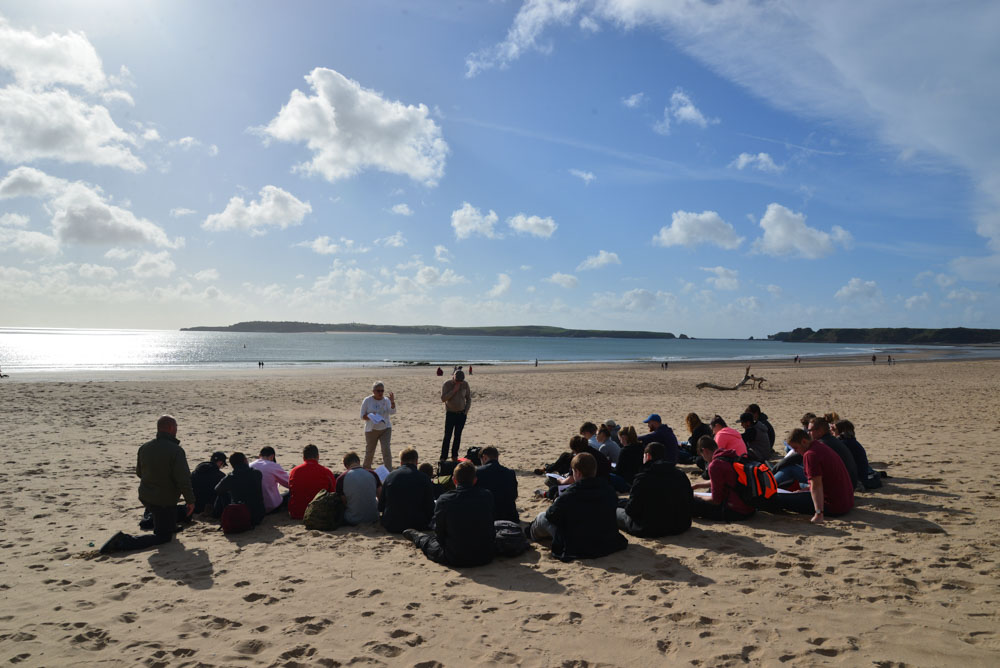
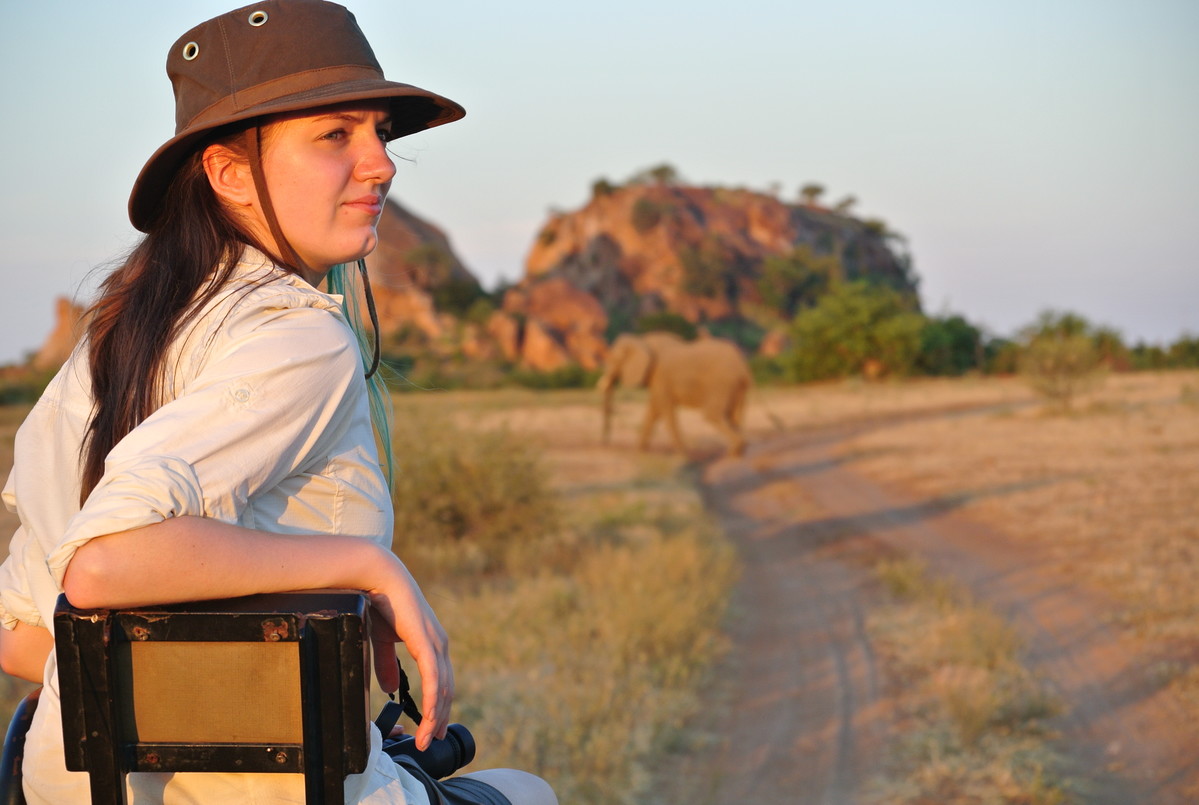
Environmental excellence
Our academic team translates their expertise and passion for the subject into their teaching and research. All courses are led and taught by experts in their fields – work by our academics on conservation issues in Ireland and the South Atlantic are informing and guiding national and international conservation policy.
Course list

